- Recent changes
- Random page
- View source
- What links here
- Related changes
- Special pages
- Printable version
- Permanent link
- Page information
- Create account

Why was the Treaty of Versailles signed after World War I a failure
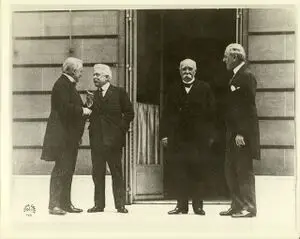
The Paris Peace Conference convened in January 1919 at Versailles just outside Paris. The conference was called to establish the terms of peace after World War I. Though nearly thirty nations participated, the representatives of the United Kingdom, France, the United States, and Italy became known as the “Big Four.” The “Big Four” dominated the proceedings that led to the formulation of the Treaty of Versailles, a treaty that ended World War I.
What were the goals of the Treaty of Versailles?
The Treaty of Versailles articulated the compromises reached the conference. It included the League of Nations' planned formation, which would serve both as an international forum and an international collective security arrangement. U.S. President Woodrow Wilson was a strong advocate of the League as he believed it would prevent future wars.
Negotiations at the Paris Peace Conference were complicated. The United Kingdom, France, and Italy fought together as the Allied Powers during the First World War. The United States entered the war in April 1917 as an Associated Power. While it fought alongside the Allies, the United States was not bound to honor pre-existing agreements among the Allied Powers. These agreements focused on the postwar redistribution of territories. U.S. President Woodrow Wilson strongly opposed many of these arrangements, including Italian demands on the Adriatic. This often led to significant disagreements among the “Big Four.”
Why was Russia excluded from the Paris Peace Conference deliberations?
The absence of other important nations also weakened treaty negotiations. Russia had fought as one of the Allies until December 1917, when its new Bolshevik Government withdrew from the war. The Bolshevik decision to repudiate Russia’s outstanding financial debts to the Allies and publish the texts of secret agreements between the Allies concerning the postwar period angered the Allies. The Allied Powers refused to recognize the new Bolshevik Government and thus did not invite its representatives to the Peace Conference. The Allies also excluded the defeated Central Powers (Germany, Austria-Hungary, Turkey, and Bulgaria).
According to French and British wishes, the Treaty of Versailles subjected Germany to strict punitive measures. The Treaty required the new German Government to surrender approximately 10 percent of its prewar territory in Europe and its overseas possessions. It placed the harbor city of Danzig (now Gdansk) and the coal-rich Saarland under the League of Nations' administration. It allowed France to exploit the economic resources of the Saarland until 1935. It limited the German Army and Navy in size and allowed for the trial of Kaiser Wilhelm II and several other high-ranking German officials as war criminals.
Under the terms of Article 231 of the Treaty, the Germans accepted responsibility for the war and the liability to pay financial reparations to the Allies. The Inter-Allied Commission determined the amount and presented its findings in 1921. The amount they determined was 132 billion gold Reichmarks, or 32 billion U.S. dollars, on top of the initial $5 billion payment demanded by the Treaty. Germans grew to resent the harsh conditions imposed by the Treaty of Versailles.
Did Americans support the Treaty of Versailles?
While the Treaty of Versailles did not satisfy all parties concerned, by the time President Woodrow Wilson returned to the United States in July 1919, U.S. public opinion overwhelmingly favored the Treaty's ratification, including the Covenant of the League of Nations. However, even though 32 state legislatures passed resolutions in favor of the Treaty, the U.S. Senate strongly opposed it.
Senate opposition cited Article 10 of the Treaty, which dealt with collective security and the League of Nations. This article, opponents argued, ceded the war powers of the U.S. Government to the League’s Council. The opposition came from two groups: the “Irreconcilables,” who refused to join the League of Nations under any circumstances, and “Reservationists,” led by Senate Foreign Relations Committee Chairman Henry Cabot Lodge, who wanted amendments made before they would ratify the Treaty. While Chairman Lodge's attempt to pass amendments to the Treaty was unsuccessful in September, he did manage to attach 14 “reservations” to it in November.
In a final vote on March 19, 1920, the Treaty of Versailles fell short of ratification by seven votes. Consequently, the U.S. Government signed the Treaty of Berlin on August 25, 1921. This separate peace treaty with Germany stipulated that the United States would enjoy all “rights, privileges, indemnities, reparations or advantages” conferred to it by the Treaty of Versailles but left out any mention of the League of Nations, which the United States never joined.
- Republished from Office of the Historian, United States Department of State
- Article: The Paris Peace Conference and the Treaty of Versailles
- United States History
- European History
- 20th Century History
- This page was last edited on 20 July 2021, at 01:15.
- Privacy policy
- About DailyHistory.org
- Disclaimers
- Mobile view

The Treaty of Versailles and its Consequences
by James J. Atkinson Europe Between the Wars Dr. Julián Casanova University of Notre Dame 16 December 2002
World War I had brought about unprecedented human suffering in European history. Whole societies of nearly every nation in the continent were either directly or indirectly affected by the war. Of the 60 million European soldiers who were mobilized from 1914 – 1918, 8 million were killed, 7 million were permanently disabled, and 15 million were seriously injured. 1 Germany lost 15.1% of its active male population, Austria-Hungry lost 17.1%, France lost 10.5%, and Britain lost 5.1%. 2 Not only were soldiers affected by the tragedies of the war, but civilians were affected also. It is estimated that approximately 5 million civilians died due to war-induced causes. The birth rate sharply declined during the war period as well. 3
Finally, on 11 November 1918, after four years of war, an armistice based on United States’ President Woodrow Wilson’s “Fourteen Points” was agreed to by Germany. The Treaty of Versailles, however, sharply differed from Wilson’s points, and Germany, who felt betrayed, denounced the treaty as “morally invalid.” 4 What made the post-war peace so difficult to attain, was not simply the terms themselves or the lack of enforcement. The political environment also has to be looked at as playing an important role in the inability of the Allies to forge a lasting peace. Henig argues that “the peace conference was held at a time of unprecedented political, social, economic and ideological upheaval. Any peace settlement would have to operate within highly unstable international and domestic environments… [and] this international instability made the attainment of a lasting peace so difficult.” 5
The goal following World War I was to restore European stability and maintain everlasting peace. However, these goals were recognized by all of the leaders as not easily achievable. French Prime Minister Clemenceau commented on the day the armistice was signed on 11 November 1918, “We have won the war: now we have to win the peace, and it may be more difficult.” 6 The French politician Marshal Foch, as the Versailles Treaty was being signed, stated rather prophetically, “This is not peace; it is an armistice for 20 years.” 7
Indeed, Foch was absolutely correct. The Versailles Treaty did little to shape any sort of long-term peace from the results of World War I. Instead, the treaty, hastily put together, was vague, exposed the Allies’ inability to cooperate toward an agreement, and fueled German nationalism from resentment over her treatment by the Allies in the treaty. Hobsbawm argues that “the Versailles settlement could not possibly be the basis of a stable peace. It was doomed from the start, and another war was practically certain.” 8 The principle reasons for the failure of the Treaty of Versailles to establish a long-term peace include the following: 1) the Allies disagreed on how best to treat Germany; 2) Germany refused to accept the terms of reparations; and 3) Germany’s refusal to accept the “war-guilt” clause, Article 231, led to growing German resentment and nationalism.
The Versailles Peace Conference exposed the ideological rift growing between the Allies. Throughout Versailles and After, Henig argues that Britain and France had “contradictory viewpoints” 9 regarding the treatment of Germany. While public opinions of both nations were strongly in favor of seeing Germany pay to the fullest extent, only France saw Germany as a potential threat to the future security of European stability. Thus, while Britain saw Germany as a “barrier-fortress against the Russians” 10 and an economically strong nation with which to engage in international trade, the French viewed Germany as a threat to French security. France feared that not levying harsh enough penalties upon Germany would only make her stronger and she would eventually rise up against France in revenge. So while the British felt that the Treaty of Versailles was too harsh on Germany, France felt as though it were not harsh enough.
One aspect to deal with was German disarmament. Kitchen explains that “there was general agreement that Germany should be disarmed but considerable differences about how this should best be achieved.” 11 Eventually, the Allies came to an agreement regarding the new state of the German military. The German navy was to be limited to 15,000 officers and men, six battleships, six light cruisers, twelve destroyers, and twelve torpedo boats; meanwhile, the army was to be restricted to 100,000 men who would be obliged to enlist for twelve years. 12 The preamble of the military section of the treaty with Germany suggests that Germany was to be disarmed “in order to render possible the initiation of a general limitation of the armaments of all nations.” 13 This is all well and good, except the Germans never abided by this part of the treaty. One of the most crucial omissions of this section was the absence of time limits, which undoubtedly worked in Germany’s favor. 14 No one could possibly expect Germany to be disarmed forever. The treaty, however, offered no hint as to how long the disarmament should last. This, therefore, was one of the parts of the treaty that Germany continually abused and disobeyed out of bitterness.
As it appeared that Germany would not abide by the disarmament policy for good, France began to worry, and for good reason. They had been unable to secure an alliance with Britain or the United States. Britain’s military budget had taken severe cuts and her government was more interested in securing her extra-European overseas colonies than in aiding her intra-European allies, such as France. Britain, unlike France, never seriously expected Germany to become a threat to the peace effort. 15 But there was the looming threat: “the Treaty of Versailles had left [Germany] largely intact, with a population almost double that of France, and with no powerful east European neighbours.” 16
Negotiations regarding the territorial claims also sparked heated debate among the Allies. In fact, the entire peace conference almost ended early when France began to demand that an independent Rhineland and Saar come under French occupation. While France argued that she wanted the western German frontier to end at the Rhine for security reasons, British Prime Minister Lloyd George feared that this would most likely result in a future conflict between the two states. 17 Henig puts the situation best by saying, “While the British government saw 66 million potential German customers, the French government trembled at the prospect of 66 million German soldiers and possible invaders.” 19 France and her Allies eventually came to a painful compromise that the Rhineland would be occupied by Allied troops for 15 years and free of German forces for an unspecified period of time.
Another issue of significant note is how the Allies dealt with the war reparations that Germany owed. One of the major questions regarding the reparations was the following: should Germany be held accountable for what she owed to the Allies or should she be held accountable for what she could afford to pay? But even answering these questions became difficult to answer. For instance, for how much was Germany accountable? Was Germany to pay for all of the damage assessed? And how was the damage assessed? Were the damages to include government costs such as war pensions? France felt that Germany should “cover the costs of restoration of invaded territories and repayment of war debts [and that] a long period of stiff repayments … would have the added advantage of keeping Germany financially and economically weak.” 19 Britain, on the other hand, was concerned with the revival of international trade and knew that if Germany was heavily in debt with the Allied Powers, she would not be able to purchase British goods in sufficient quantities. 20 Because of all of the ambiguities involving the war reparations, an exact monetary figure owed by the Germans to the Allies was never included in the Treaty of Versailles.
For Germany, the terms of reparations eventually arrived at by the Reparations Committee were unacceptable. The German delegates viewed the economic sanctions as being far too harsh. The final telegraphed communication from the German National Assembly to the Allies in Versailles stated, “The government of the German Republic in no wise abandons its conviction that these conditions of peace represent injustice without example.” 21 The British economist John Maynard Keynes wrote in 1920 The Economic Consequences of the Peace in which he argues that the German economy would be destroyed by the post-war Versailles Treaty. Kitchen claims that according to Keynes, “a series of treaties which overlooked the really important issues of economic recovery, food, fuel, and finance would further exacerbate the situation.” 22 The fact of the matter is that Germany never felt as though they were defeated in World War I. Therefore, they had a hard time accepting the fact that they should have to pay for anything. Keynes’ work provided German supporters with all the arguments they needed against the reparations and reconstruction efforts of the Versailles Treaty.
Keynes refers to the economic terms as “outrageous and impossible.” 23 France, who pushed for harsher German punishment and reparation levels more than any other Allied Power, wanted the reparations to seriously cripple the German state. Sally Marks in The Illusion of Peace states that the treatment of reparations by both sides was “the continuation of war by other means. … Reparations became the chief battleground of the post-war era, the focus of power between France and Germany over whether the Versailles Treaty was to be enforced or revised.” 24 But were the reparations really so economically damaging? Or was that a farce created by Keynes and supported by the German government who wished to avoid further punishment and humiliation? This will be discussed more in upcoming pages.
Article 231 of the Treaty of Versailles, which laid the blame for World War I solely on the shoulders of Germany, remains to this day a subject of intense emotional debate among Germans:
The Allied and Associated Governments affirm and Germany accepts the responsibility of Germany and her allies for causing all the loss and damage to which the Allied and Associated Governments and their nationals have been subjected as a consequence of the war imposed upon them by the aggression of Germany and her allies.
Henig argues that “this clause, known as the ‘war-guilt’ clause, more than any other in the entire Treaty of Versailles, was to cause lasting resentment in Germany.” 25 The Treaty presented to the German delegates at Versailles was a harsh break from the promise of a treaty based on Wilson’s “Fourteen Points.” The Germans felt betrayed by the treaty presented to them and resented the manner in which the Allied Powers were treating them. Because of this seemingly harsh treatment, “every party in Germany, from the Communists on the extreme left to Hitler’s National Socialists on the extreme right, concurred in condemning the Versailles Treaty as unjust and unacceptable.” 26 As James argues, Versailles was indeed “the unifying bracket that clamped German politics together.” 27
Thus, the war-guilt clause and the reparations demanded from Germany did little more than to add fuel to the fire that was growing German resentment and nationalism. Hobsbawm even goes as far to say that the war-guilt clause “proved to be a gift to German nationalism.” 28 Marks argues that “the peace left Germany both powerful and resentful.” 29 It is quite possible, in fact, that German was actually more powerful in 1919 than she was in 1914, especially if one takes into account the deep-seated feelings of resentment that she housed toward her enemies, especially France and Britain.
Despite Germany’s claim that the terms of the treaty were far too harsh, most historians today agree that the terms, in fact were “relatively lenient.” 30 Henig alludes to this earlier in her book, when she concludes that “the Treaty of Versailles was not excessively harsh on Germany. … It deprived her of about 13.5% of her territory, 13% of her economic productivity and about 7 million [or 10%] of her inhabitants.” 31 Theoretically, the Allies could have dealt Germany much harsher blows. Then again, unable to effectively enforce this treaty, a harsher one would not have been able to lead Europe any closer to peace.
As Foch predicted, the Versailles Treaty was indeed only a 20 year armistice for the European powers. The inability of the Allies to agree on how to deal with Germany, the main war-time aggressor, led to her regain of economic and political strength in the 1920s and 30s. The Second World War, which broke out in 1939, was waged by Germany against the Allies to exact revenge and to finish what could not be completed by World War I. Mazower refers to World War II as “a bloody reopening of accounts by extreme nationalists wishing to revise the Versailles settlement by force.” 32 The Germans had always resented the terms and conditions of the treaty. Now, with the onset of World War II, Hitler appeared to their chance at avenging the wrongdoings set in place by the peace negotiations twenty years earlier.
Thus, the Treaty of Versailles failed to bring about everlasting European stability and peace for which the Allied Powers’ governments had hoped. The treaty was put together in haste and the Germans refused to sign it because it treated them, or at least they thought so, too harshly in light of what they had been promised (i.e. a mild treaty resembling Wilson’s “Fourteen Points”). For years afterwards, the Allies and Germany struggled through revision after revision of the treaty until the treaty could bend no more in 1939, with the outbreak of World War II as Germany invaded Poland.
What stopped the Treaty of Versailles from ever approaching success, however, was not the terms of the treaty, argues Henig, but rather the reluctance to enforce the terms by the Allies. They were naïve to assume that Germany would cooperate with the treaty terms by themselves. “Thus within a year of the peace conference, the victorious alliance which had defeated Germany and negotiated a set of peace terms had crumbled away. It was this critical collapse, rather than the provisions of the peace terms themselves, which ensured that the Treaty of Versailles was never fully accepted or enforced. Negotiations at the peace conference exposed the divisions between the victorious powers and opened the rifts.” 33 The Allies were strong enough to win the war, but not strong enough to secure the peace.
Revision after revision, therefore could not fix what was doomed to failure. In 1939, the Versailles Treaty was proved to be an ultimate failure as the World War continued after the 20-year armistice.
Image: The Signing of Peace in the Hall of Mirrors, Versailles, 28th June 1919 © IWM (Art.IWM ART 2856) | Image Link
- M. Kitchen, Europe Between the Wars (New York: Longman, 2000), p. 22.
- ibid., p. 23.
- R. Henig, Versailles and After: 1919 – 1933 (London: Routledge, 1995), p. 67.
- ibid., p. 69.
- ibid., p.31.
- ibid., p. 52.
- E. Hobsbawm, The Age of Extremes (New York: Vintage Books, 1996), p. 34.
- Henig, p. 1.
- ibid., pp.8-9.
- Kitchen, p. 8.
- Henig, p. 19.
- ibid., p. 43.
- ibid., p. 70.
- ibid., p. 20.
- A.M. Luckau, The German Delegation at the Paris Peace Conference (New York: Columbia University Press, 1941), p. 112.
- Kitchen, p. 1.
- Henig, p. 50.
- ibid., p. 63.
- ibid., p. 21.
- Hobsbawm, p. 36.
- H. James, Weimar: Why did German Democracy Fail?
- ibid., p. 98.
- Henig, p. 59.
- ibid., p. 61.
- ibid., p.30
- M. Mazower, Dark Continent (New York: Vintage Books, 2000), p. 212.
- Henig, p. 31.
BIBLIOGRAPHY
Dawson, William Harbutt. Germany under the Treaty (New York: Books for Libraries Press, 1933).
Henig, Ruth. Versailles and After: 1919 – 1933 (London: Routledge, 1995). Henig provides a very thorough account of the Treaty of Versailles and the development of the League of Nations. She argues here that the reluctance to enforce the treaty, rather than the treaty terms themselves, was the main cause of the treaty’s failure.
Hobsbawm, Eric. The Age of Extremes: A History of the World, 1914 – 1991 (New York: Vintage Books, 1996).
Keynes, John Maynard. The Economic Consequences of the Peace (New York: Harcourt, Brace and Howe, 1920). Keynes is sympathetic with Germany and calls for the Allies to revise the Versailles Treaty to be less harsh on German’s economy. Keynes forecasted that the reparations terms would crush the German economy.
Kitchen, Martin. Europe Between the Wars (London: Longman, 2000). A very well organized material on the inter-war period in Europe.
Luckau, Alma Maria. The German Delegation at the Paris Peace Conference (New York: Columbia University Press, 1941).
Marks, Sally. The Illusion of Peace: International Relations in Europe, 1918 – 1933 (London, 1976). Marks argues that it is incredible that the Treaty of Versailles came out as well as it did, considering the circumstances.
Mazower, Mark. Dark Continent: Europe’s Twentieth Century (New York: Vintage Books, 2000).
© 2002–2024 Jimmy Atkinson. All rights reserved.
About | Updates | Photos | Papers
How the Treaty of Versailles ended WWI and started WWII
European countries dealt a harsh punishment to Germany for its role in the First World War—a move that would soon come back to haunt the world.

United States president Woodrow Wilson smiles as he leads the procession that followed the signing of the Treaty of Versailles. Although Wilson personally negotiated the treaty, it was never ratified by Congress.
On June 28, 1919, on the outskirts of Paris, European dignitaries crowded into the Palace of Versailles to sign one of history’s most hated treaties. Known as the Treaty of Versailles, it formally ended World War I—and at the same time laid the foundation for the Second World War. Though it was preceded by a peace conference that lasted over a year, the treaty was disliked by every nation that signed it.
Over 65 million people had fought in World War I, and more than 8.5 million military members and at least 6.6 million civilians died. The war decimated farmland, towns, and battlefields around Europe. And according to many, Germany was to blame. Though contemporary historians are still split on who should be held responsible for World War I, the treaty blamed and punished Germany.

European leaders sign the treaty to end World War I in the Hall of Mirrors at the Palace of Versailles.
From idealism to punishment
During World War I , President Woodrow Wilson had proposed the Fourteen Points , a blueprint for world peace that included establishing an association of nations to ensure European security and prevent nations’ abilities to enter into secretive mutual protection treaties. Much of that idealistic plan was scuttled during negotiations when the other Allied nations shifted their priorities toward reparations.
The treaty itself was predicated on Germany’s guilt for the war. The document stripped Germany of 13 percent of its territory and one tenth of its population. The Rhineland was occupied and demilitarized, and German colonies were taken over by the new League of Nations . The German army was diminished to 100,000 men and the country was forbidden to draft soldiers. Its weapons were largely confiscated, and its navy stripped of large vessels. Germany was forced to put Wilhelm II, its emperor, on trial for war crimes. And the treaty required Germany to pay 269 billion gold marks—the equivalent of $37 billion.
European leaders signed the treaty in the Palace of Versailles’ Hall of Mirrors—the very place where the German Empire had been created, and Wilhelm II’s father made emperor, in 1871. It was a slap in the face to Germany, whose residents saw the famous “war guilt” clause as a humiliation. (The United States did not ratify the treaty due to political division between Democrats and Republicans.)
The treaty’s aftermath
Though there was a real desire for peace in the wake of the disastrous war, the treaty did not achieve its intended effects. Furious at what they saw as a harsh “diktat” (a dictated peace), right-wing German politicians used the treaty as a nationalist rallying point. The staggering reparations payments reduced the country’s industrial output, and other forces thrust Germany into hyperinflation in the 1920s, which played into the economic instability of the Great Depression.
European leaders were dissatisfied with the redrawn map of Europe and the concessions they each had made in the name of an uneasy peace, with some disappointed that Germany hadn’t been treated even more harshly.
In 2010, ninety years after the Treaty of Versailles went into force, Germany finally paid off the last installment of its war debt. By then, another world war was behind it. Today, the Treaty of Versailles lingers as a study in how, when it comes to war, unintended consequences can negate even the best intentions.
FREE BONUS ISSUE
Related topics.
- WORLD WAR I
- WORLD WAR II
You May Also Like

How did a Japanese WWII submarine end up in Texas?

Pearl Harbor was the only WWII attack on the U.S., right? Wrong.

Exclusive: Wreck of fabled WWI German U-boat found off Virginia

Who was Golda Meir?

A father's legacy drove WWII general MacArthur's ambition
- History & Culture
- Environment
- Paid Content
History & Culture
- History Magazine
- Terms of Use
- Privacy Policy
- Your US State Privacy Rights
- Children's Online Privacy Policy
- Interest-Based Ads
- About Nielsen Measurement
- Do Not Sell or Share My Personal Information
- Nat Geo Home
- Attend a Live Event
- Book a Trip
- Inspire Your Kids
- Shop Nat Geo
- Visit the D.C. Museum
- Learn About Our Impact
- Support Our Mission
- Advertise With Us
- Customer Service
- Renew Subscription
- Manage Your Subscription
- Work at Nat Geo
- Sign Up for Our Newsletters
- Contribute to Protect the Planet
Copyright © 1996-2015 National Geographic Society Copyright © 2015-2024 National Geographic Partners, LLC. All rights reserved
- Understanding the Code of Conduct in Medieval Times
- Exploring Nigerian Culture
- A Brief History of Major Battles in World War I
- Exploring Primary Sources in World History
- Knights and Chivalry
- Code of Conduct
- Armor and Weapons
- Medieval Life
- Health and Medicine
- Holidays and Celebrations
- Serfs and Peasants
- Kings and Lords
- City-States
- Gods and Goddesses
- Julius Caesar
- Industrial Revolution
- Impact on Society
- World War II
- Allied Powers
- Atomic Bomb
- World War I
- Treaty of Versailles
- Major Battles
- Leaders and Rulers
- Alexander the Great
- Queen Elizabeth I
- Napoleon Bonaparte
- Activists and Reformers
- Nelson Mandela
- Susan B. Anthony
- Mahatma Gandhi
- Scientists and Inventors
- Thomas Edison
- Marie Curie
- Albert Einstein
- Fall of the Berlin Wall
- Cuban Missile Crisis
- Civil Rights Movement
- Martin Luther King Jr.
- Segregation
- Climate Change
- Renewable Energy
- Greenhouse Effect
- Impact on Environment
- African Cultures
- Egyptian Culture
- Nigerian Culture
- Asian Cultures
- Japanese Culture
- Indian Culture
- Chinese Culture
- Latin American Cultures
- Aztec Civilization
- Mayan Civilization
- Inca Civilization
- Natural Disasters
- Tsunami in Japan
- Hurricane Katrina
- Pompeii Eruption
- Important Events
- Signing of the Declaration of Independence
- Discovery of Penicillin
- Moon Landing
- Cultural Achievements
- Renaissance Art
- Ancient Chinese Inventions
- Assessment Tools
- Projects and Presentations
- Writing Assignments
- Quizzes and Tests
- Teaching Methods
- Interactive Learning
- Primary Sources
- Role-playing
- Educational Resources
- Online Databases
- Educational Games
- Museums and Exhibits
- Photographs and Artifacts
- Government Documents
- Diaries and Letters
- Online Sources
- Websites and Blogs
- Digital Archives
- Books and Literature
- Historical Fiction
- Biographies
- The Impact and Significance of the Treaty of Versailles in World History
The Treaty of Versailles, signed on June 28, 1919, marked the end of World War I and had a profound impact on the course of world history . This historic agreement, also known as the Paris Peace Conference, was signed by the victorious Allied powers and the defeated Germany, and its terms would shape the political landscape of Europe for decades to come. The treaty was intended to bring about lasting peace and prevent future conflicts, but its impact would be far-reaching and controversial. As part of our exploration of the Modern Era and World War I, we must delve into the complexities of this treaty and its significance in shaping the world we live in today.
From reparations and territorial changes to the establishment of the League of Nations, the Treaty of Versailles had a significant impact on not only Europe but also the rest of the world. Join us as we examine the various aspects of this treaty and its role in shaping modern history. Whether you are a history buff or simply curious about one of the most important events in world history, this article will provide valuable insight into the Treaty of Versailles and its aftermath. So let's dive in and discover the fascinating story behind this pivotal moment in time. The Treaty of Versailles, signed on June 28, 1919, marked the end of World War I and was one of the most significant events in modern history. It was a peace agreement that aimed to establish lasting peace in Europe and prevent future wars.
The treaty was signed by Germany and the Allied Powers, including France, Britain, and the United States. The origins of the treaty can be traced back to the Paris Peace Conference in January 1919, where world leaders gathered to negotiate the terms of peace after the devastating war. The treaty was heavily influenced by the leaders of the Allied Powers, particularly French Prime Minister Georges Clemenceau, who sought harsh punishments for Germany. The negotiations for the treaty were long and difficult, with Germany being forced to accept full responsibility for the war and pay heavy reparations. The terms of the treaty also included the demilitarization of Germany and the loss of its territories. This was seen as a major blow to Germany's national pride and led to resentment among its people. The aftermath of the Treaty of Versailles had a profound impact on Germany, France, and other nations involved in World War I.
For Germany, the treaty created a sense of humiliation and bitterness, which ultimately contributed to the rise of Adolf Hitler and the Nazi Party. France, on the other hand, saw the treaty as a victory and sought to enforce it strictly, leading to strained relations with Germany. Other countries such as Austria-Hungary, Bulgaria, and the Ottoman Empire also faced consequences from the treaty, losing territories and facing economic sanctions. The new borders and political changes in these regions had long-lasting effects on their cultures and societies. Furthermore, the Treaty of Versailles played a significant role in shaping global events in the modern era. The harsh terms imposed on Germany led to economic instability and social unrest, which paved the way for the rise of dictatorships in Europe.
Global Effects
Impacts on germany, origins of the treaty of versailles, negotiations and terms.
The negotiations leading up to the treaty were complex and involved a number of key players from various countries. These players had different motivations and agendas, which ultimately shaped the terms of the treaty. One of the main players in the negotiations was British Prime Minister David Lloyd George. He was determined to secure harsh penalties for Germany, in order to prevent them from ever posing a threat to Britain again. This was driven by his desire to maintain British dominance in Europe. French Prime Minister Georges Clemenceau also played a major role in the negotiations.
France had suffered greatly during the war and Clemenceau wanted to ensure that Germany would pay for their actions. He pushed for strict reparations and harsh terms, which would cripple Germany's economy. President Woodrow Wilson of the United States was another key player in the negotiations. He had initially proposed his Fourteen Points, which aimed to establish peace and prevent future wars. However, due to pressure from the other allies, Wilson had to compromise on many of his ideals and agree to some of the harsher terms in the treaty. The motivations of these key players were not limited to their own countries' interests.
Legacy of the Treaty of Versailles
The treaty aimed to punish Germany for its involvement in the war and dictated harsh terms that would ultimately lead to the rise of Adolf Hitler and the start of World War II. However, beyond its immediate impact on Germany, the Treaty of Versailles also had a lasting legacy on international relations and conflicts. This article will explore the effects of the treaty on global affairs and how it shaped the course of history in the decades to come. One of the most significant legacies of the Treaty of Versailles was its impact on international relations. The treaty created a sense of resentment and bitterness among many Germans, who felt humiliated by the terms imposed upon them.
This led to a desire for revenge and a push towards militarization, which ultimately contributed to the outbreak of World War II. Additionally, the treaty's harsh treatment of Germany also strained relations between European nations and set the stage for future conflicts. Furthermore, the Treaty of Versailles played a crucial role in shaping the political landscape of the world. The redrawing of borders and creation of new nations in Europe resulted in long-standing tensions and conflicts, particularly in Eastern Europe. The treaty's failure to address issues such as colonialism and self-determination also had far-reaching consequences, leading to ongoing conflicts in regions such as Africa and the Middle East. In conclusion, the Treaty of Versailles had a significant and lasting impact on international relations and conflicts.
In conclusion
New articles.
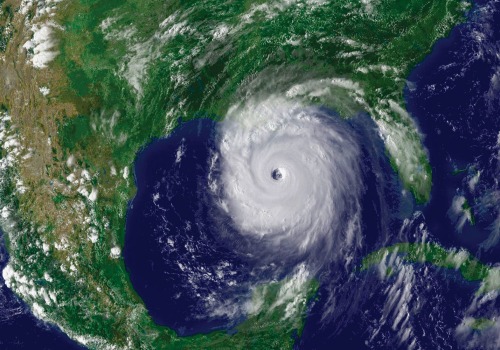
- The Devastation of Hurricane Katrina: A Look Back at One of the Deadliest Natural Disasters in World History
Learn about Hurricane Katrina and its impact on the world. From the historical context to the devastation it caused, this article covers all aspects of this natural disaster.

- The Power of Role-Playing: Exploring World History Through Immersive Education
Unleash the potential of role-playing as an effective teaching method for world history. Dive into the rich cultures and events that shaped our global landscape, while learning about influential figures and facts. This article will guide you through incorporating r

- Exploring the Fascinating Mayan Civilization: A Journey Through Time
Uncovering the Rich History and Culture of the Mayan Civilization in Latin America
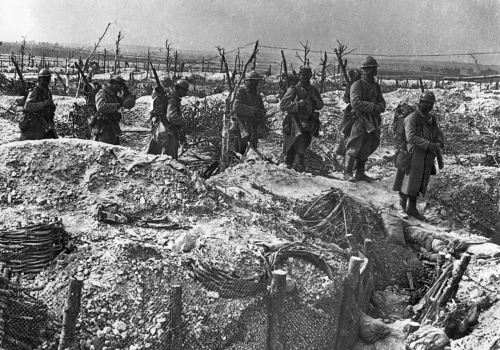
Gain a deeper understanding of World War I by learning about its major battles
Top Articles
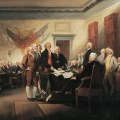
- The Signing of the Declaration of Independence: A Pivotal Moment in World History

- Understanding the Greenhouse Effect: An Overview of Global Climate Change

- Marie Curie: A Pioneer in Science and History

- Understanding Indian Culture: A Journey Through Time
- Exploring Ancient Chinese Inventions
- Exploring the Life and Reign of Queen Elizabeth I
- The Discovery of Penicillin: Uncovering the Life-Saving Antibiotic
Exploring World History Through Government Documents
- The Fascinating World of the Inca Civilization: A Journey Through Latin American Cultures
- A Brief History of Factories in the Modern Era
- Museums and Exhibits: Unlocking the Secrets of World History
- Exploring the Rise and Fall of the Empire: A Journey Through Ancient Rome
- Exploring the Fascinating World of Armor and Weapons
- A Brief Overview of Albert Einstein's Life and Contributions
- A Journey Through the City-States of Ancient Greece
- Understanding the Causes of World War I
- The Cuban Missile Crisis: A Defining Moment in World History
- Photographs and Artifacts: Exploring the Past Through Primary Sources
- A Fascinating Look into the World of Pharaohs
- Nelson Mandela: A Leader in the Fight for Equality
- Understanding Tsunami in Japan
- A Journey to the Moon: Exploring the History of the Moon Landing
- A Journey Through History: Exploring Digital Archives
- Discovering the Genius of Thomas Edison
- Health and Medicine in Medieval Times: Exploring the Connection between Body and Mind
- The Impact on the Environment: Understanding the Effects of Climate Change
- Understanding the Impact of the Atomic Bomb
- Holidays and Celebrations: Exploring World History Through Medieval Times
- The Fascinating World of Biographies: A Comprehensive Look into Historical Figures and Events
A Brief History of Kings and Lords: Exploring Medieval Times and Feudalism
- The Devastating Pompeii Eruption: A Comprehensive Look into One of the World's Most Notorious Natural Disasters
- Discover the Richness of Chinese Culture
- Understanding Segregation: A Comprehensive Look at Global Events and the Civil Rights Movement
- Napoleon Bonaparte: The Rise and Fall of a Revolutionary Leader
- Discovering Egyptian Culture
- Websites and Blogs: A Comprehensive Overview of World History Resources
- Exploring World History Through Interactive Learning
- Understanding Quizzes and Tests in World History
- Rosa Parks: The Mother of the Civil Rights Movement
- Alexander the Great: The Legendary Leader Who Conquered the World
- Understanding the Crusades: A Journey Through Medieval Times
- Uncovering the Mysteries of Mummies
- Inventions Throughout History: A Journey Through the Modern Era and Industrial Revolution
- The Marvelous Pyramids of Ancient Egypt: An Introduction to One of the World's Greatest Wonders
- Understanding Historical Fiction: A Comprehensive Overview
- An Overview of Mythology in Ancient Greece
- Julius Caesar: The Life and Legacy of a Roman Emperor
- Exploring the World Through Educational Games
- Textbooks: A Comprehensive Resource for Understanding World History
- Understanding the Allied Powers in World War II
Exploring the World of Gods and Goddesses
- The Fall of the Berlin Wall: A Defining Moment in World History
- Exploring Projects and Presentations in World History
- Exploring the World of Renewable Energy
- A Brief Overview of the Fascinating Inca Civilization
- Exploring the World of Manors
- Diaries and Letters: Exploring Primary Sources of World History
- Writing Assignments: A Comprehensive Guide to World History Education
- Discovering Daily Life in Medieval Times
- Impact on Society During the Industrial Revolution
- The Rise and Fall of Gladiators in Ancient Rome
- The Life and Legacy of Mahatma Gandhi
- The Power of Online Databases: Unlocking the Secrets of World History
- The Cold War's Impact on the Space Race: A Comprehensive Overview
- The Fascinating World of Renaissance Art
- Discover the Impact of Susan B. Anthony on World History
- Discovering the Richness of Japanese Culture
- Podcasts for Exploring World History
- Martin Luther King Jr.: A Champion for Civil Rights
- Understanding Serfs and Peasants in Medieval Times
- Exploring the Rich History of the Aztec Civilization
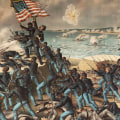
Which cookies do you want to accept?
- History Classics
- Your Profile
- Find History on Facebook (Opens in a new window)
- Find History on Twitter (Opens in a new window)
- Find History on YouTube (Opens in a new window)
- Find History on Instagram (Opens in a new window)
- Find History on TikTok (Opens in a new window)
- This Day In History
- History Podcasts
- History Vault
How the Treaty of Versailles and German Guilt Led to World War II
By: Sarah Pruitt
Updated: June 29, 2023 | Original: June 29, 2018

When Germany signed the armistice ending hostilities in the First World War on November 11, 1918, its leaders believed they were accepting a “peace without victory,” as outlined by U.S. President Woodrow Wilson in his famous Fourteen Points . But from the moment the leaders of the victorious Allied nations arrived in France for the peace conference in early 1919, the post-war reality began to diverge sharply from Wilson’s idealistic vision.
Five long months later, on June 28—exactly five years after the assassination of Archduke Franz Ferdinand and his wife in Sarajevo—the leaders of the Allied and associated powers, as well as representatives from Germany, gathered in the Hall of Mirrors at the Palace of Versailles to sign the final treaty. By placing the burden of war guilt entirely on Germany, imposing harsh reparations payments and creating an increasingly unstable collection of smaller nations in Europe, the treaty would ultimately fail to resolve the underlying issues that caused war to break out in 1914, and help pave the way for another massive global conflict 20 years later.
None of the defeated nations at the Paris Peace Conference weighed in
Formal peace negotiations opened in Paris on January 18, 1919, the anniversary of the coronation of German Emperor Wilhelm I at the end of the Franco-Prussian War in 1871. World War I had brought up painful memories of that conflict—which ended in German unification and its seizure of the provinces of Alsace and Lorraine from France—and now France intended to make Germany pay.
The “Big Four” leaders of the victorious Allied nations (Woodrow Wilson of the United States, David Lloyd George of Great Britain, Georges Clemenceau of France and, to a lesser extent, Vittorio Orlando of Italy) dominated the peace negotiations. None of the defeated nations were invited to weigh in, and even the smaller Allied powers had little say. Though the Versailles Treaty, signed with Germany in June 1919, was the most famous outcome of the Paris Peace Conference, the Allies also had separate treaties with Austria, Bulgaria, Hungary and Turkey, and the formal peacemaking process wasn’t concluded until the signing of the Treaty of Lausanne in July 1923.
The treaty was lengthy and ultimately did not satisfy any nation.
The Versailles Treaty forced Germany to give up territory to Belgium, Czechoslovakia and Poland, return Alsace and Lorraine to France and cede all of its overseas colonies in China, Pacific and Africa to the Allied nations. In addition, it had to drastically reduce its armed forces and accept the demilitarization and Allied occupation of the region around the Rhine River. Most importantly, Article 231 of the treaty placed all blame for inciting the war squarely on Germany and forced it to pay several billion in reparations to the Allied nations.
Faced with the seemingly impossible task of balancing many competing priorities, the treaty ended up as a lengthy and confusing document that satisfied no one. “It literally is an attempt to remake Europe,” says Michael Neiberg, professor of history at U.S. Army War College and author of The Treaty of Versailles: A Concise History (2017). “I’m not one of those people who believes the treaty made the Second World War inevitable, but I think you could argue that it made Europe a less stable place.”
In Wilson’s vision of the post-war world, all nations (not just the losers) would reduce their armed forces, preserve the freedom of the seas and join an international peacekeeping organization called the League of Nations. But his fellow Allied leaders rejected much of his plan as naive and too idealistic. The French, in particular, wanted Germany to pay a heavy price for the war, including loss of territory, disarmament and payment of reparations, while the British saw Wilson’s plan as a threat to their supremacy in Europe.
Black Thursday brings the roaring twenties to a screaming halt, ushering in a worldwide economic depression.
Aside from affecting Germany, the Treaty of Versailles might have caused the Great Depression.
Many people, even at the time, agreed with the British economist John Maynard Keynes that Germany could not possibly pay so much in reparations without severe risks to the entire European economy. In his later memoir, U.S. President Herbert Hoover went so far as to blame reparations for causing the Great Depression .
But though most Germans were furious about the Treaty of Versailles, calling it a Diktat (dictated peace) and condemning the German representatives who signed it as “November criminals” who had stabbed them in the back, in hindsight it seems clear that the treaty turned out to be far more lenient than its authors might have intended. “Germany ended up not paying anywhere near what the treaty said Germany should pay,” Neiberg says, adding that hardly anyone had expected Germany to be able to pay the entire amount.
And despite the loss of German territory, “there were plenty of people who understood as early as 1919 that the map actually gave Germany some advantages,” Neiberg points out. “It put small states on Germany’s borders, in eastern and central Europe. It eliminated Russia as a direct enemy of Germany, at least in the 1920s, and it removed Russia as an ally of France. So while the treaty looked really harsh to some people, it actually opened up opportunities for others.”
The war guilt clause was more problematic. “You have to go back to 1914, when most Germans believed they had entered the war because Russia had mobilized its army,” explains Neiberg. “To most Germans in 1919, and not just those on the right, blaming Germany specifically for the war made no sense. Especially when they did not put a war guilt clause on Austria-Hungary, which you could reasonably argue were the people that actually started this.”
New European borders, the League of Nations and Germany reparations.
Taken as a whole, the treaties concluded after World War I redrew the borders of Europe, carving up the former Austro-Hungarian Empire into states like Yugoslavia, Poland and Czechoslovakia. As Neiberg puts it: “Whereas in 1914, you had a small number of great powers, after 1919 you have a larger number of smaller powers. That meant that the balance of power was less stable.”
The Versailles Treaty also included a covenant for the League of Nations , the international organization that Woodrow Wilson had envisioned would preserve peace among the nations of Europe and the world. But the U.S. Senate ultimately refused to ratify the Versailles Treaty due to its opposition to the League, which left the organization seriously weakened without U.S. participation or military backing.
Meanwhile, Germany’s economic woes, exacerbated by the burden of reparations and general European inflation, destabilized the Weimar Republic, the government established at the end of the war. Due to lasting resentment of the Versailles Treaty, the National Socialist (Nazi) Party and other radical right-wing parties were able to gain support in the 1920s and early ‘30s by promising to overturn its harsh provisions and make Germany into a major European power once again.
The Versailles Treaty made World War II possible, not inevitable.
In 1945, when the leaders of the United States, Great Britain and Soviet Union met at Potsdam, they blamed the failures of the Versailles Treaty for making another great conflict necessary and vowed to right the wrongs of their peacekeeping predecessors. But Neiberg, like many historians, takes a more nuanced view, pointing to events other than the treaty—including the United States not joining the League of Nations and the rise of the Stalinist regime in the Soviet Union—as necessary elements in understanding the path to the Second World War.
“In my own personal view as a historian, you need to be really careful directly connecting events that happened 20 years apart,” he says. “A different treaty produces a different outcome, yes. But you shouldn’t draw inevitability. It’s part of the recipe, but it’s not the only ingredient.”
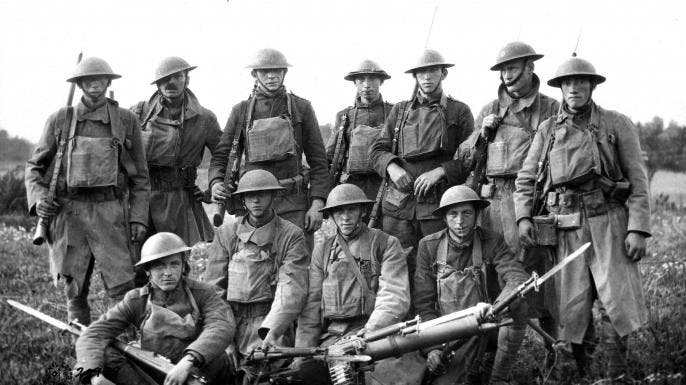
HISTORY Vault: World War I Documentaries
Stream World War I videos commercial-free in HISTORY Vault.

Sign up for Inside History
Get HISTORY’s most fascinating stories delivered to your inbox three times a week.
By submitting your information, you agree to receive emails from HISTORY and A+E Networks. You can opt out at any time. You must be 16 years or older and a resident of the United States.
More details : Privacy Notice | Terms of Use | Contact Us

The most comprehensive and authoritative history site on the Internet.
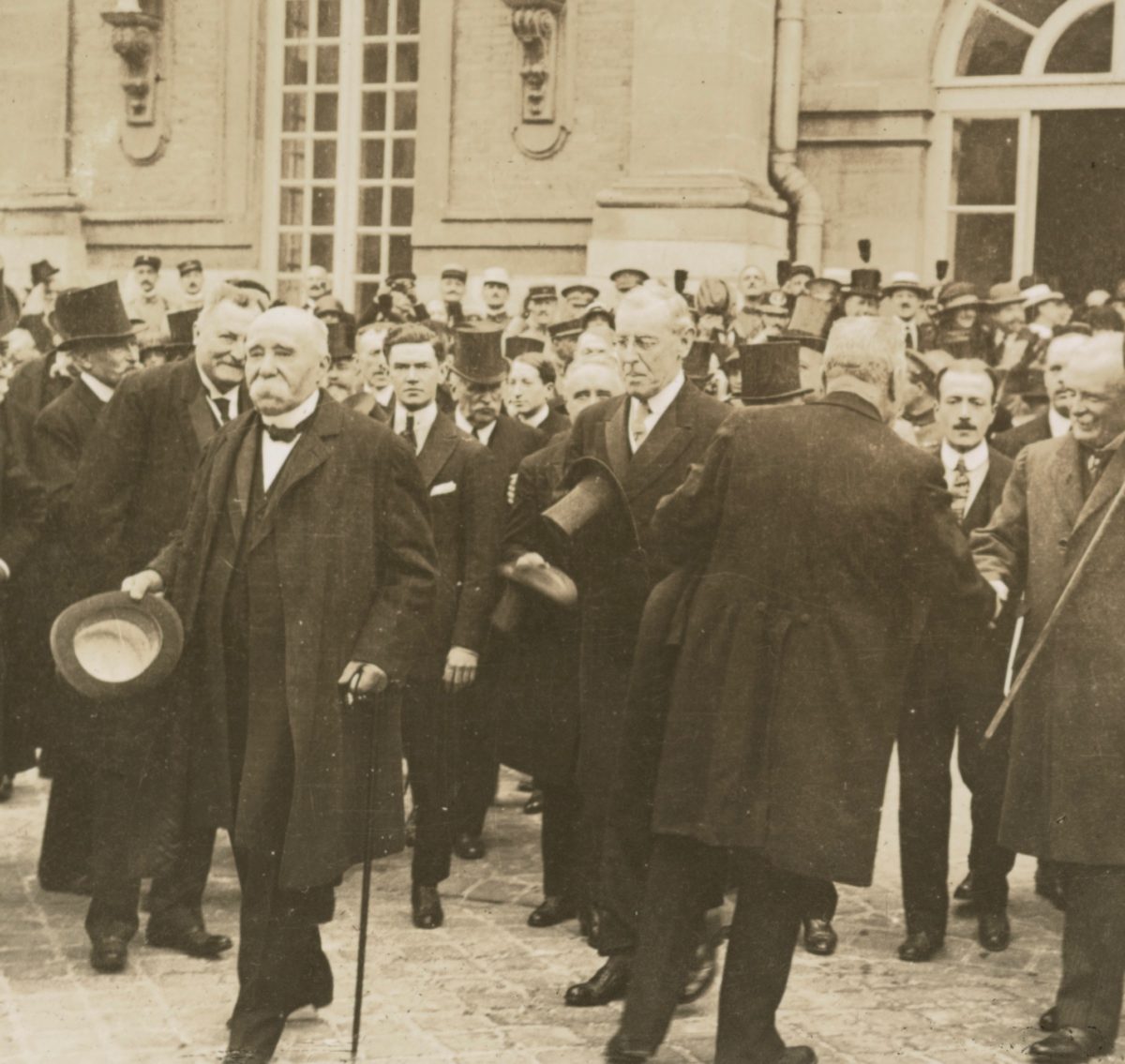
No, the 1919 Treaty of Versailles Was Not Responsible for World War II
Although we typically think of November 11, 1918, as the end date of World War I , that day only marked the start of an armistice ending the actual fighting, not the official termination of the war. To bring about a formal conclusion to the Great War, the victorious Allied Powers (led by Britain, France, the United States and Italy) had to complete peace treaties with each of their opponents in the Central Powers (Germany, Austria, Hungary, Bulgaria and the Ottoman Empire).
The most important of these treaties was the Treaty of Versailles, ending the war with Germany that was produced by the Paris Peace Conference and signed June 28, 1919. Yet even before the treaty was signed, it sparked criticism and controversy. And when World War II erupted 20 years later, the treaty was maligned and blamed for causing the political, economic and military conditions that led to the 1939-45 global conflict.
In the decades since, generations of historians have written countless books and other works creating what “everyone knows ” about the 1919 Treaty of Versailles: The overly punitive treaty, imposed as “victors’ justice” on helpless Germany by the triumphant Allies, was chiefly responsible for making World War II inevitable. Its “war guilt” article humiliated Germany by forcing it to accept all blame for the war, and it imposed disastrously costly war reparations that destroyed both the post-World War I German economy and the democratic Weimar Republic. The treaty, therefore, ensured the rise of Adolf Hitler and the Nazi Party . Moreover, the U.S. Senate’s refusal to ratify the treaty caused the collective security organization, the League of Nations, to fail because the United States was not a member. Furthermore, no less an authority than French Marshal Ferdinand Foch, the World War I supreme Allied commander, apparently agreed with this assessment, famously complaining in 1919, “This is not peace. It is an armistice for 20 years!”
Yet while the Treaty of Versailles did result in a failed peace and another world war only two decades later, its real failures are not what we have been led to believe for over 90 years. When we examine the facts , it becomes clear that what “everyone knows” about the infamous treaty is simply wrong .
THE 1919 PARIS PEACE CONFERENCE: THE TIGER AND THE LOOT
From January 18 to June 28, 1919, 32 delegations representing 27 countries met in Paris to produce the Versailles Treaty officially ending the Allies’ war with Germany. Despite the large number of countries involved, the conference was dominated by the “Big Four” major Allied Powers: the United States, Great Britain, France and Italy. Anyone remotely familiar with the history of international diplomacy would not be shocked to learn that during the conference each of the Big Four representatives pursued his own agenda, which included goals that frequently conflicted with those of his counterparts.
President Woodrow Wilson decided to personally represent the United States at the conference, yet it is hard to imagine anyone more naively idealistic about the true nature of international relations. (See Special Feature , “War and Diplomacy,” July 2010 ACG .) Wilson was a bona fide intellectual and social “progressive,” but he often seemed insufferably self-righteous and his view of how nations conducted international relations was, at best, a triumph of hope over experience — he was convinced that “good will” among world leaders would overcome supposedly petty national interests and cynical balance of power politics. Wilson’s idealistic worldview is best captured in his “14 Points” statement, announced in January 1918, calling for free trade, freedom of the seas, open agreements between nations, the promotion of democracy and self-determination among peoples worldwide, and the establishment of the League of Nations to ensure territorial integrity and to maintain world peace.
Although the Big Four European members used Wilson’s 14 Points as enticing propaganda to help convince Germany to surrender in 1918, they represented colonial powers that hardly considered global “democracy and self-determination” in their national interests. Self-determination was applied in the Versailles Treaty when it suited the European members’ interests, but was ignored when it did not. Wilson found that to persuade his more pragmatic European allies to agree to his cherished League of Nations, he had to compromise on most of his other points.
Recommended for you
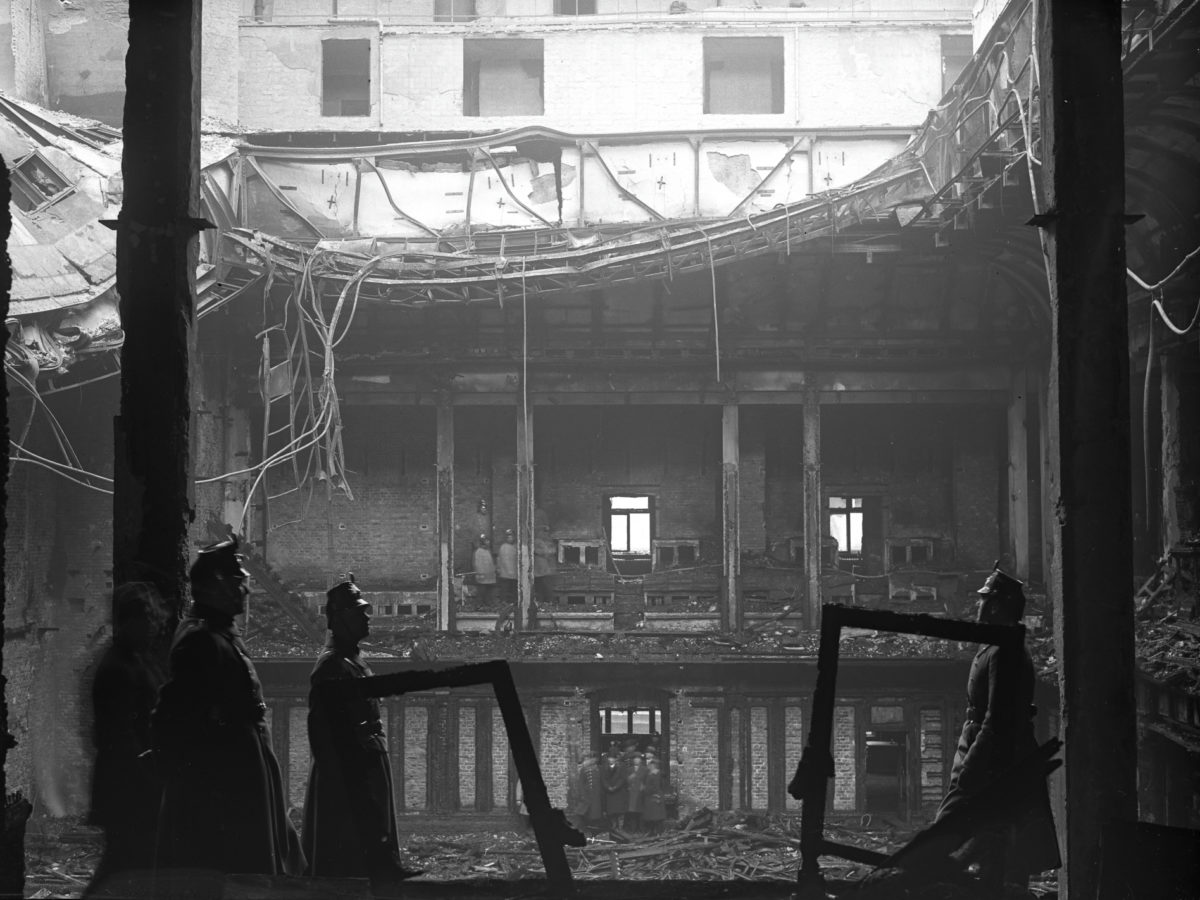
They Say He Burned Down the Reichstag. But Was He Drugged Into Confessing?
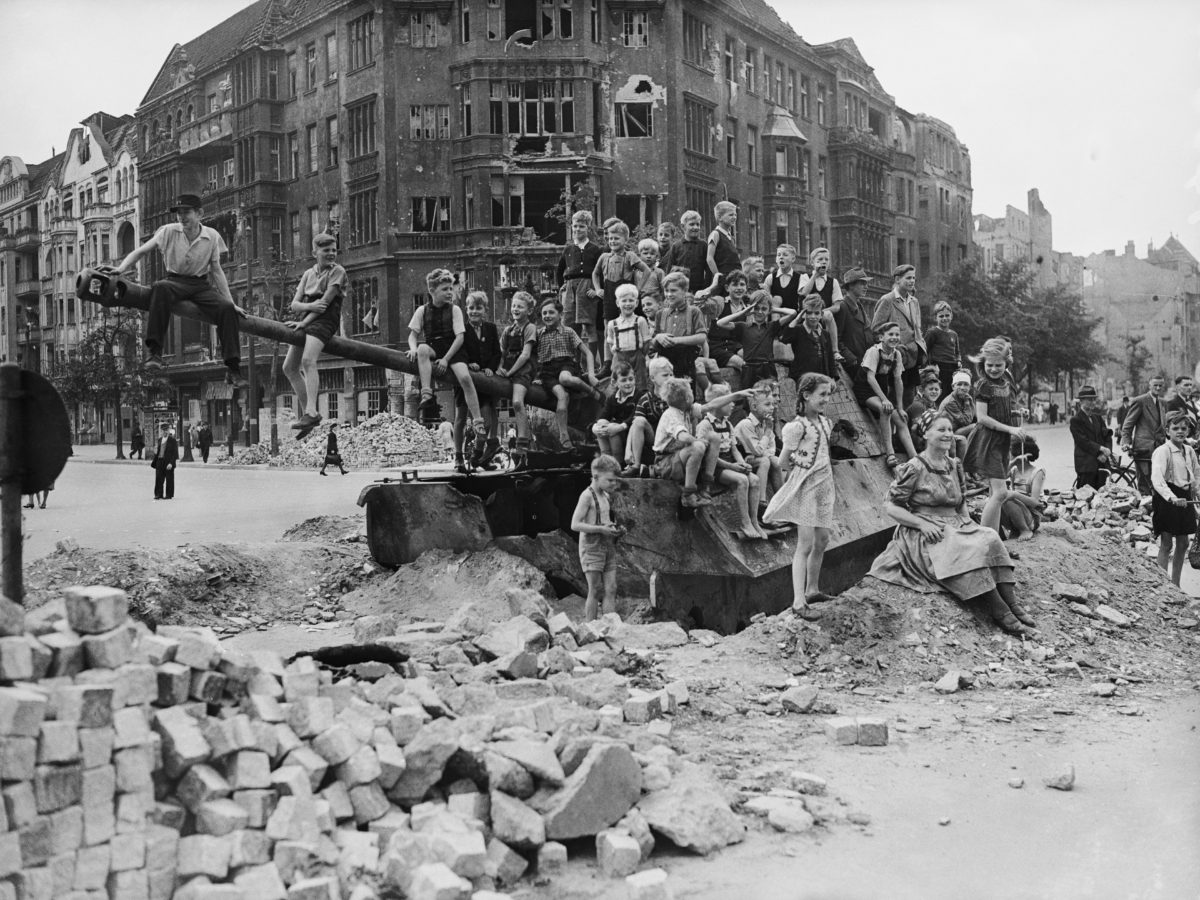
Why Post-WWII Berliners Are the Heroes of Sinclair McKay’s New Book
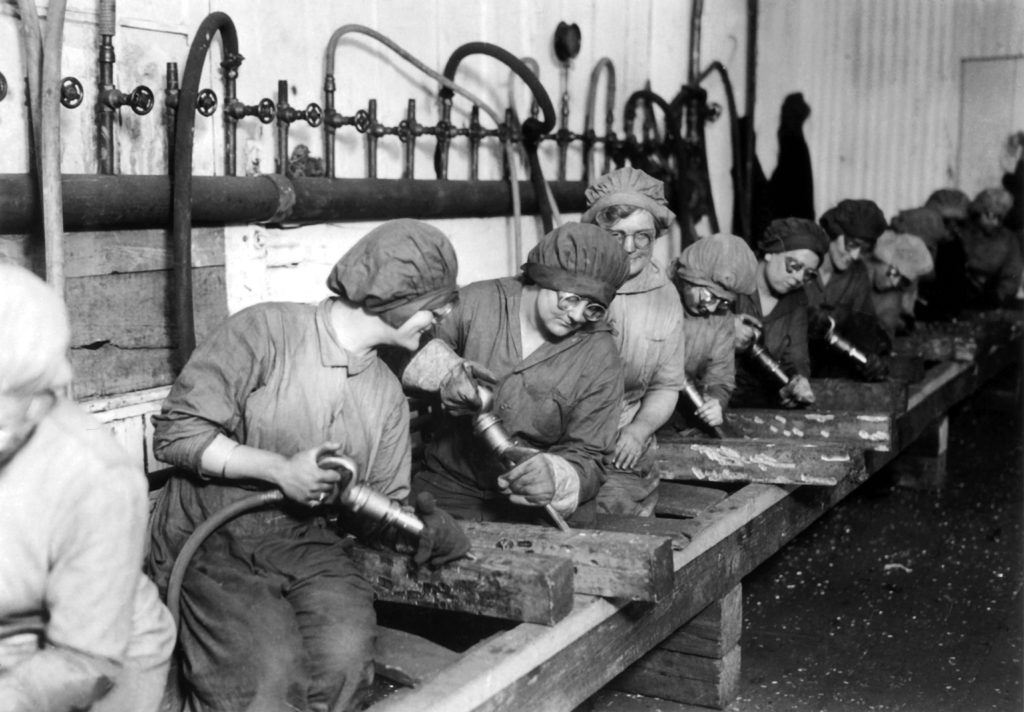
Hot Issues in 1918 Midterm Election Roil U.S. Politics Today
France was represented by its “Tiger,” Prime Minister Georges Clemenceau. Since Germany had invaded France twice in the previous four decades in wars fought on French soil (in 1870 and 1914), Clemenceau’s principal goals were ensuring his country’s security against future German aggression, to include permanent demilitarization of the Rhineland (Germany west of the Rhine River) and restrictions on German military forces, and requiring Germany to pay reparations for the civilian damages wrought by its brutal, exploitative, four-year occupation of northern France and Belgium. During the occupation of northern France – an area containing nearly 60 percent of the country’s steel manufacture and 40 percent of its coal production – the Germans had confiscated and shipped back home what they wanted, and when they evacuated the region near the end of the war, they sabotaged much of what they had left behind. Clemenceau’s insistence that the German invaders be required to pay for the civilian damages they had caused in France and Belgium became the principal justification for the Versailles treaty’s war reparations articles.
Prime Minister David Lloyd George, who had held the post since 1916, represented Great Britain. Although he was considered the epitome of 20th-century liberalism and a social reformer, he proved ruthless enough to maintain Britain’s naval blockade that strangled Germany of vital food supplies for eight months after the November 1918 armistice. Tens of thousands of German civilians died of starvation or malnutrition-related illnesses before Britain finally lifted the blockade once Germany signed the Versailles treaty. Lloyd George largely accomplished his main goals, which were eliminating Germany’s High Seas Fleet as a threat to the Royal Navy and maintaining the British Empire. He even added to Britain’s colonial empire when it (along with France, Belgium and Japan) assumed “mandates” (colonies in all but name) over colonies the treaty stripped from Germany and the Ottoman Empire. Britain acquired Iraq, Palestine and Jordan in the Middle East and four former German colonies in Africa.
The major goal of Italy’s representative, Prime Minister Vittorio Orlando, was “loot” in the form of increased territory for his country. Bribed by the Allies with promises of territorial gains, Italy entered the war in 1915 against Austria-Hungary and in 1916 against Germany. Thus Orlando was in Paris to collect, but Italy’s dismal battlefield record had hardly put him in a position to make demands. Orlando stormed out of the conference in April when it became clear that Italy would not receive all the territory it wanted.
The treaty signed June 28, 1919, in Versailles’ Hall of Mirrors comprised 440 articles in 426 pages (English text and French text on facing pages), plus annexes and maps. Its several parts notably included part I establishing the League of Nations; part II creating Germany’s postwar boundaries (Germany lost 13 percent of its territory and all of its colonies); part V imposing military restrictions on Germany’s armed forces; and part VIII specifying war reparations to be paid principally to France, Belgium, Britain and Italy for civilian damages caused by the German invasion and occupation.
After decades of propaganda and mythmaking, however, it is time to set the record straight by revealing what the Treaty of Versailles did not do.
WAR REPARATIONS: REVENGE OR REVISIONISM?
First and foremost, a stake should be driven once and for all through the heart of the most egregiously false claim about the Treaty of Versailles — that Germany was unfairly saddled with heavily punitive, disastrously costly war reparations that destroyed its postwar economy, caused crippling hyperinflation and doomed the democratic Weimar Republic. In fact, requiring defeated nations to pay reparations to the victors was a long-standing feature of treaties ending European wars. This penalty was not suddenly invented at the 1919 Paris Peace Conference to punish Germany; rather, it was simply “business as usual.” Germany had typically imposed similar penalties on countries it had defeated, including demanding billions of marks from Russia in the heavily punitive March 1918 Treaty of Brest-Litovsk. (See “Treaty of Brest-Litovsk,” p. 45.) Significantly, Germany had forced France to pay billions in “indemnities” after its victory in the 1870-71 Franco-Prussian War – and German forces continued occupying part of France until payment was made. The French promptly paid in full, even though the cost was equal to 25 percent of their national income.
The next important point is two-fold: First, the reparations Germany was required to pay were for civilian damages caused by its invasion and occupation of Belgium and northern France. Second, the Allies calculated the amount based on Germany’s ability to pay, not on the actual cost of repairing those damages – which was much greater. The claim that the Versailles treaty required Germany to pay “the entire cost of the war” is completely false, as verified in Article 232, which stated that Germany was to pay “compensation for all damage done to the civilian population of the Allied and Associated Powers and to their property during the period of belligerency.”
Another revealing fact is that the figure Germany supposedly was required to pay for reparations — a hefty 132 billion marks – was intentionally misleading. The Allies never intended Germany to pay such a huge sum. It was only included in the treaty as “spin” — an effort to fool the (principally French) general public into thinking that Germany was going to be severely punished economically for its war depredations. As historian and economist Sally Marks, among others, has pointed out, the actual figure the Allies intended Germany to pay, and which they had calculated Germany could pay, was a more modest 50 billion marks. In fact, during treaty negotiations, the Germans had offered to pay 51 billion!
Yet Germany never paid even that much lower figure. Between 1920 and 1931 (when Germany suspended reparations payments indefinitely) it paid only 20 billion. But even this figure is misleading, since only 12.5 billion of it was paid in cash. The remainder was paid “in kind” through deliveries of coal, chemicals, lumber and railway assets. Moreover, the 12.5 billion in cash was from money Germany acquired through loans from bankers in New York. Germany not only received far more money in U.S. loans (27 billion) than it paid out in cash for reparations, in 1932 it also defaulted on these loans after paying back only a small percentage.
In effect, except for a few billion “in kind” payments, Germany paid no war reparations out of its own pocket. What “everyone knows” about Germany being crippled by war reparations therefore is a myth. French economist Etienne Mantoux surely was right when he wrote, “Germany was not unable to pay reparations, it was unwilling to pay them.”
HYPERINFLATION: 4 BILLION MARKS FOR A BEER
Closely related to the “crippling and punitive” war reparations myth is the claim that the reparations were the cause of the disastrous hyperinflation that ruined Germany’s economy between 1921 and 1924. Yet as noted, from 1920 to 1931, Germany, with the help of U.S. loans, paid only a small fraction of the reparations it was supposed to pay — hardly enough to ruin its economy.
The roots of Germany’s post-World War I disastrous hyperinflation stem from the beginning of the war when the Kaiser and his ministers decided how they would finance the costly conflict. Instead of imposing taxes to pay for the war, they decided to fund it by borrowing. The effect of this decision was to begin a steady devaluation of the German mark against foreign currencies. Germany’s solution to the problem — unwisely continued by the postwar Weimar government to solve its own economic woes — was to print more money. Predictably, this caused inflation, and as more money entered circulation, inflation rates increased.
The trigger that moved postwar Germany’s increasing inflation rates to the level of disastrous “hyperinflation” was the way the Weimar government chose to respond to the 1923 French occupation of Germany’s Ruhr industrial region after Germany continually defaulted on its reparations payments. The Weimar government encouraged and abetted “passive resistance” — such as work stoppages and strikes — to the French occupation and paid German workers for their cooperation by printing vast amounts of money. The result of this deliberate policy decision by Weimar politicians was to send inflation rates skyrocketing into “hyperdrive.” By November 1923, a loaf of bread cost Germans 3 billion marks, a pound of meat cost 36 billion, and a glass of beer was 4 billion.
Although the Weimar government conveniently blamed “war reparations” for causing the hyperinflation crisis, Germany was in fact paying no reparations at the time. Germany’s hyperinflation and economic catastrophe during the Weimar Republic years was due to its politically motivated economic policies, not “crippling” reparations payments to the Allies.
Moreover, the claim that hyperinflation led directly to the rise of Adolf Hitler and the Nazis flies in the face of reality. Revaluation of the German mark in 1924 stabilized the German economy, and by 1927 — years before Hitler’s rise to power — it was one of the world’s strongest (although Germany did later suffer economically in the global Great Depression, which between 1930 and 1933 created conditions Hitler exploited).
GET HISTORY’S GREATEST TALES—RIGHT IN YOUR INBOX
Subscribe to our HistoryNet Now! newsletter for the best of the past, delivered every Monday and Thursday.

‘WAR GUILT’: TRUTH OR LIE?
Perhaps the most contentious part of the Treaty of Versailles is Article 231, the so-called “war guilt” clause that has been egregiously mis -nicknamed and habitually misrepresented. Neither “guilt” nor “war guilt” is mentioned in the article, yet German politicians – first those in the Weimar Republic and later Hitler and the Nazis — used these terms to demonize the treaty in their efforts to sidestep Germany’s obligations. Although German propagandists in the 1920s and 1930s created the story that the treaty forced Germany to accept the humiliating “war guilt” clause assigning it blame for the entire war, historians have continued to echo this propaganda ever since. In fact, the German “war guilt” propaganda was so effective that during the 1920s many in the populations of Allied countries — particularly Britain — began accepting the idea, which helped sap the Allies’ will to rigorously enforce the treaty’s provisions.
When read by itself, Article 231 does appear to make the Germans’ “war guilt” claim seem plausible: “The Allied and Associated Governments affirm and Germany accepts the responsibility of Germany and her allies for causing all the loss and damage to which the Allied and Associated Governments and their nationals have been subjected as a consequence of the war imposed upon them by the aggression of Germany and her allies.” However, it is vitally important to place the article within the proper context of the treaty. It is the preamble to part VIII, regarding reparations, and not a “standalone” section solely intended to blame Germany for the war — which, if that had been the Allies’ intention, surely would have merited its own section. Clearly, the authors of the article, American diplomats Norman Davis and John Foster Dulles, merely intended it to establish Germany’s acceptance of its responsibility to pay the reparations for the civilian damages its military had wrought, as laid out in the subsequent articles (232-247) of part VIII.
Both Davis and Dulles were shocked when German politicians chose to interpret Article 231 as Germany taking full blame for World War I. Indeed, the exact same text was used in the Allied treaties with both Austria and Hungary, and neither of those nations ever considered that the language implied any “war guilt” on their part. Only German politicians — both for their own domestic political reasons and as a means to gain international sympathy — chose to interpret Article 231 as unfairly placing blame for the entire war on Germany.
Article 231, when correctly read in conjunction with Article 232 immediately following it, actually limits Germany’s responsibility for the war by requiring Germany to pay only for civilian damages caused by its invasion and occupation of Belgium and northern France. And, as noted, even that was further limited to what the Allies calculated Germany could pay.
Yet German propagandists in the Weimar and Nazi eras eagerly promoted what they termed the “war guilt lie ” — which right-wing politicians often linked with the equally false claim that “the German army was stabbed in the back” — to gain domestic and international support for their efforts to avoid compliance with the Versailles treaty provisions. But the term “war guilt lie ” more accurately should be applied to what the propagandists succeeded in making us believe all these years — the myth that the Treaty of Versailles unnecessarily humiliated Germany by forcing it to accept total blame for World War I.
THE LEAGUE OF NATIONS: ALWAYS DOOMED TO FAIL
The last enduring myth regarding what “everyone knows” about the Treaty of Versailles is that the U.S. Senate’s failure to ratify the treaty doomed the League of Nations to failure since the United States was not a member of the global security organization. Yet that claim assumes that the League would have been successful at preventing another world war if the United States had been a member. In fact, due to serious flaws in its concept, organization and procedure for settling international disputes or stopping aggression, the League of Nations could hardly have prevented predatory nations from doing whatever they wanted, whether or not the United States was a part of it.
Wilson’s vision for the League of Nations, as set out in the last of his 14 Points and codified as Part I of the Versailles Treaty, was a “general association of nations established to afford mutual guarantees of political independence and territorial integrity of all nations great and small.” The pillars of the League were collective security, disarmament and settlement of international disputes through arbitration. Yet this was based on voluntary participation by league members – essentially relying on “good will.” The League of Nations had no standing military force to back up any decision it made, and if a nation disagreed with the League’s decision, it could simply “opt out” – as Nazi Germany (1933), Imperial Japan (1933) and Fascist Italy (1937) eventually did when they withdrew from the league after it tried to oppose their aggression.
The League’s only recourse was to try to impose international sanctions on an offending nation. But since these could be economically detrimental to the nations imposing them, this procedure ran counter to the national interests of many League members, whose response was typically to ignore the sanctions. Most often, League members preferred to deal individually with other nations, essentially reverting to traditional “balance of power” bilateral international relations. Increasingly, as the 1930s wore on the League became irrelevant in international affairs. Those who embrace the long-standing myth that the United States doomed the League to failure never seem to explain how U.S. membership in the League could have overcome the inherent fatal flaws in its organization and procedure.
Moreover, as Henry Kissinger noted, the general mood in the United States in the 1920s and 1930s (non-entanglement in European affairs), the abysmal shape of America’s military forces from 1919 until after 1939, and the inability of any American representative to the League to commit the United States to action without prior legislative approval would “not have made a significant difference” to what actually transpired.
Finally, one need only point out that the League of Nations’ successor organization, the United Nations — of which the United States is a founding member — has not been particularly successful at preventing wars and global conflict over the course of its existence.
After exposing the egregious but long-standing myths about the Treaty of Versailles, it is important to examine the real failures of the much-maligned treaty.
WHY THE TREATY REALLY FAILED
First, the Treaty of Versailles was not tough enough on Germany. In fact, as historian Correlli Barnett claimed, the treaty was “extremely lenient in comparison with the peace terms that Germany … had in mind to impose on the Allies” had Germany won the war. Barnett characterizes the Versailles treaty as “hardly a slap on the wrist” compared to the harsh Treaty of Brest-Litovsk that Germany imposed on defeated Russia. Germany’s claim, which countless historians have parroted, that the Versailles treaty was overly harsh and too punitive against Germany is, as Kissinger noted, “self-pitying nonsense.”
Even Marshal Foch’s oft-cited quote about the treaty being only “a 20 year armistice” is flagrantly misleading when presented out of context, as it often is. Foch was not criticizing the treaty as being too hard on Germany but was actually making the opposite point — that it was not punitive enough . He was lamenting that the treaty did not ensure that Germany’s armed forces and strategic position were permanently weakened , principally through perpetual French occupation of the Rhineland.
Second, despite the fact that Germany lost 13 percent of its territory and all of its colonies, it actually emerged from World War I in an overall more favorable strategic position than when it started the war. Germany’s colonies, essentially “prestige possessions” to bolster Kaiser Wilhelm’s ego, were an unnecessary drain on its economy. The Allies did Germany a favor by taking them away. The European territory Germany lost — principally a slice in the east to help form independent Poland, and Alsace and Lorraine in the west, which Germany had taken from France in 1871 — was not vital to German industry, which, unlike the industry in northern France and Belgium, had avoided wartime destruction. The eastern territory that was lost helped establish a buffer zone between Germany and the rising power in the East, the Soviet Union, while Germany’s other borders, save that with France, abutted a collection of weak new nations replacing the stronger ones that had bordered prewar Germany. Given Germany’s larger population and, after 1927, more robust economy than its European rivals, within a decade after World War I ended, Germany’s strategic position was greatly enhanced over what existed in 1914.
Perhaps the Allies’ gravest failure in the Versailles treaty was allowing Germany to voluntarily comply with the provisions, since Germany had no incentive to fulfill the obligations to which it had agreed. A closely related failure is that of Allied will to enforce the treaty. With isolationist America essentially “opting out” of the task, and the demoralized, increasingly pacifist British population suddenly getting a collective guilty conscience when it fell for German propaganda, it was left to France to try to enforce the treaty. Except for some half-hearted attempts — notably the 1923 occupation of the Ruhr industrial region in a vain attempt to get Germany to stop defaulting on reparations — France proved incapable of going it alone. In Germany’s clash of wills with its former World War I opponents, Germany won.
In effect, Germany simply ignored its obligations under the Treaty of Versailles. Although much has been made by historians about the military restrictions imposed on Germany — the dissolution of the German General Staff, limiting the size of the German army to only 100,000 men, armaments prohibitions, etc. — none of these restrictions were ever rigorously enforced, and Germany began violating them immediately. It was the democratic Weimar Republic in the early 1920s, not Hitler in the mid-1930s, that hid the treaty-banned German General Staff behind the façade of the innocuous-sounding “Truppenamt” (Troop Office) bureaucracy; Weimar politicians and military leaders who negotiated in the 1920s secret training facilities in Russia where German tank tactics and equipment, later to become “blitzkrieg,” were developed; Weimar officials who colluded with German military leaders to avoid the Versailles treaty restrictions, clandestinely training combat pilots; and the Weimar government that in 1932, a year before Hitler took power as chancellor, announced that Germany would no longer abide by the military restrictions imposed by the Versailles treaty.
Finally, and most tragically, one thing the Treaty of Versailles did not fail to do was to give German politicians — from Weimar democrats to Hitler’s Nazi thugs — a useful propaganda tool when they twisted the facts and lied about what was actually in the treaty to support their political agendas. Unfortunately, those lies and myths have become what “everyone knows” about the Treaty of Versailles.
Jerry D. Morelock , PhD, “Armchair General” Editor in Chief Originally published in the November 2013 issue of Armchair General.
Related stories

Portfolio: Images of War as Landscape
Whether they produced battlefield images of the dead or daguerreotype portraits of common soldiers, […]

Jerrie Mock: Record-Breaking American Female Pilot
In 1964 an Ohio woman took up the challenge that had led to Amelia Earhart’s disappearance.

The One and Only ‘Booger’ Was Among History’s Best Rodeo Performers
Texan Sam Privett, the colorfully nicknamed proprietor of Booger Red’s Wild West, backed up his boast he could ride anything on four legs.

This Victorian-Era Performer Learned that the Stage Life in the American West Wasn’t All Applause and Bouquets
Sue Robinson rose from an itinerant life as a touring child performer to become an acclaimed dramatic actress.
HISTORIC ARTICLE
Jun 28, 1919 ce: treaty of versailles.
On June 28, 1919, the Treaty of Versailles was signed at the Palace of Versailles outside Paris, France.
Social Studies, U.S. History, World History
Loading ...
On June 28, 1919, the Treaty of Versailles was signed at the Palace of Versailles outside Paris, France. The treaty was one of several that officially ended five years of conflict known as the Great War— World War I . The Treaty of Versailles outlined the conditions of peace between Germany and the victorious Allies, led by the United States, France, and the United Kingdom. Other Central Powers (significantly, Austria-Hungary) signed different treaties with the Allies.
The Treaty of Versailles is one of the most controversial armistice treaties in history. The treaty ’s so-called “war guilt” clause forced Germany and other Central Powers to take all the blame for World War I . This meant a loss of territories, reduction in military forces, and reparation payments to Allied powers.
Some historians think the Treaty of Versailles was, in the words of British economist John Maynard Keynes, “one of the most serious acts of political unwisdom for which our statesmen have ever been responsible.” They say it contributed to German economic and political instability that allowed for the formation of the National Socialists (Nazis) just a year later.
Other historians note that the Treaty of Versailles was actually very restrained—Germany and other Central Powers were not occupied by Allied forces after the war. However, it would take Germany several decades to pay off their reparations. The treaty was also much more lenient than the armistice treaty (the Treaty of Brest-Litovsk) Germany forced on Russia when that nation negotiated an exit from the war a year earlier.
Media Credits
The audio, illustrations, photos, and videos are credited beneath the media asset, except for promotional images, which generally link to another page that contains the media credit. The Rights Holder for media is the person or group credited.
Last Updated
October 19, 2023
User Permissions
For information on user permissions, please read our Terms of Service. If you have questions about how to cite anything on our website in your project or classroom presentation, please contact your teacher. They will best know the preferred format. When you reach out to them, you will need the page title, URL, and the date you accessed the resource.
If a media asset is downloadable, a download button appears in the corner of the media viewer. If no button appears, you cannot download or save the media.
Text on this page is printable and can be used according to our Terms of Service .
Interactives
Any interactives on this page can only be played while you are visiting our website. You cannot download interactives.
Related Resources
The answers to this question and all your GCSE/iGCSE history topics is only a click away.
Download our FREE app for Android and iOS .
Arguments For and Against the Fairness of the Versailles Settlement
- ❖ They believed Germany only said that it was unable to meet the terms because it wanted to escape punishment .
- ❖ They thought it punished the defeated countries but gave them the opportunity to recover.
- ❖ Some people believed it wasn't harsh enough. The French, especially, were worried Germany would soon recover enough strength to challenge France again.
- ❖ In 1918 Germany itself had made a treaty with defeated Russia , the Treaty of Brest-Litovsk , that was much harsher than the Versailles Settlement .
- ❖ Germany had already agreed to pay reparations in the Armistice of November 1918.
- ❖ At the time, the First World War was the most devastating conflict the world had seen, and people saw it as the right thing for losing nations to be punished in this manner.
- ❖ 'History is written by the victors,' as the saying goes. In most wars it is common for the losers to agree to a harsh settlement.
- ❖ There were problems with the peace settlement, but the war had a huge impact on the geography of Europe. The peacemakers had to act quickly before the region became unstable so they did the best job they could.
- ❖ Some people, particularly in Germany, but also British politicians like J M Keynes, felt the Versailles Settlement was unfairly harsh for the following reasons:
- ❖ They had expected it to follow Wilson's 14 Points, but it differed from these significantly. Wilson's points were based on creating a fairer world for everyone; had they known the treaty would not be based on these principles, Germany might not have signed.
- ❖ They didn't believe Germany should accept the blame for the war. The causes of the war were complex; each leading European nation, including Britain, played a role in the tensions that led to war in 1914.
- ❖ They felt it was a revenge treaty , designed to make the Germans suffer.
- ❖ Many people feared it would lead to another war once Germany had recovered enough to take revenge.
- ❖ Six million Germans were displaced and had to live in other countries, despite Wilson's principle of self-determination . They feared persecution as they had been forced to accept responsibility for the war.
- ❖ The German people felt the treaty was a ' diktat ', a dictated peace, because they were not allowed to have a say at the conference.
- ❖ German was hugely affected economically by the war and felt it would never recover from the scale of reparations.
- ❖ The Treaty of Lausanne undermined any arguments about fairness regarding the Versailles Treaty .
Welcome to Clever Lili!
Turbocharge your history revision with our revolutionary new app! Clever Lili is here to help you ace your exams.
Enhanced Learning
Study guides, android and ios app, alexa and google home, ask question in facebook messenger, gcse history.
A text and voice app that allows you to easily revise for your GCSE/IGCSE exams wherever you are. Whether you’re at home or on the bus, GCSE History provides you with thousands of convenient bite-sized facts to help you pass your exams with flying colours. Great for student and teachers.

MA in American History : Apply now and enroll in graduate courses with top historians this summer!
- AP US History Study Guide
- History U: Courses for High School Students
- History School: Summer Enrichment
- Lesson Plans
- Classroom Resources
- Spotlights on Primary Sources
- Professional Development (Academic Year)
- Professional Development (Summer)
- Book Breaks
- Inside the Vault
- Self-Paced Courses
- Browse All Resources
- Search by Issue
- Search by Essay
- Become a Member (Free)
- Monthly Offer (Free for Members)
- Program Information
- Scholarships and Financial Aid
- Applying and Enrolling
- Eligibility (In-Person)
- EduHam Online
- Hamilton Cast Read Alongs
- Official Website
- Press Coverage
- Veterans Legacy Program
- The Declaration at 250
- Black Lives in the Founding Era
- Celebrating American Historical Holidays
- Browse All Programs
- Donate Items to the Collection
- Search Our Catalog
- Research Guides
- Rights and Reproductions
- See Our Documents on Display
- Bring an Exhibition to Your Organization
- Interactive Exhibitions Online
- About the Transcription Program
- Civil War Letters
- Founding Era Newspapers
- College Fellowships in American History
- Scholarly Fellowship Program
- Richard Gilder History Prize
- David McCullough Essay Prize
- Affiliate School Scholarships
- Nominate a Teacher
- Eligibility
- State Winners
- National Winners
- Gilder Lehrman Lincoln Prize
- Gilder Lehrman Military History Prize
- George Washington Prize
- Frederick Douglass Book Prize
- Our Mission and History
- Annual Report
- Contact Information
- Student Advisory Council
- Teacher Advisory Council
- Board of Trustees
- Remembering Richard Gilder
- President's Council
- Scholarly Advisory Board
- Internships
- Our Partners
- Press Releases
History Resources

Treaty of Versailles and President Wilson, 1919 and 1921
A spotlight on a primary source by the paris peace conference and william gibbs mcadoo.
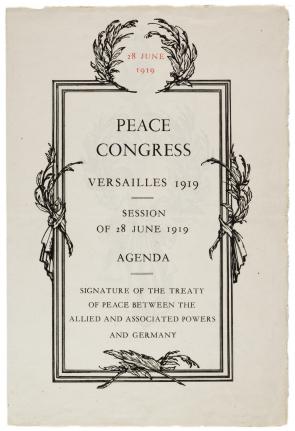
The treaty would largely come to be seen as a failure for Wilson, however. Congress, concerned about conceding individual power in order to become a member of the League of Nations, refused to ratify it. Wilson had been the driving force behind the League of Nations, and while the other signatories of the treaty embraced the League, American isolationism quashed enthusiasm for it at home. This press statement, released as Wilson left office in 1921 by William Gibbs McAdoo—who was both Wilson’s son-in-law and his treasury secretary—defends the President’s handling of the Treaty of Versailles. McAdoo argued that Wilson had "laid the foundations of world peace and a new order" and made a "matchless contribution to his time" in the treaty. "Whatever may be the imperfections of the Treaty from a political or economic standpoint," McAdoo wrote, "Woodrow Wilson did not fail."
A full transcript is available.
I do not agree with those who hastily and inconsiderately adjudge the President’s work at the Peace Conference a failure. Whatever may be the imperfections of the Treaty from a political or economic standpoint, Woodrow Wilson did not fail. The outstanding thing for which he fought, the thing that transcends political and economic considerations, is the permanent peace of the world. Unless this is secured all else is failure; without this the sublimest hope of humanity is sunk in the black abyss; without this all political and economic adjustments are unstable and sooner or later will disappear.
Questions for Discussion
Read the document introduction and the transcript excerpt and view the images. Then apply your knowledge of American history in order to answer the questions that follow.
- How can we explain the hostility and indifference many Americans expressed toward Wilson’s efforts after the war?
- Examine the cover of the program. How does it explain why the activities at Versailles were looked upon with so much interest?
- Explain the concerns of Secretary McAdoo.
A printer-friendly version is available here .
Stay up to date, and subscribe to our quarterly newsletter.
Learn how the Institute impacts history education through our work guiding teachers, energizing students, and supporting research.
How the Treaty of Versailles Contributed to Hitler's Rise
Its provisions left Germany in ruins, fertile ground for the Nazis
- European History Figures & Events
- Wars & Battles
- The Holocaust
- European Revolutions
- Industry and Agriculture History in Europe
- American History
- African American History
- African History
- Ancient History and Culture
- Asian History
- Latin American History
- Medieval & Renaissance History
- Military History
- The 20th Century
- Women's History
- M.A., Medieval Studies, Sheffield University
- B.A., Medieval Studies, Sheffield University
In 1919, a defeated Germany was presented with peace terms by the victorious powers of World War I . Germany wasn’t invited to negotiate and was given a stark choice: sign or be invaded. Perhaps inevitably, given the years of mass bloodshed German leaders had caused, the result was the Treaty of Versailles . But from the start, the terms of the treaty caused anger, hate, and revulsion across German society. Versailles was called a diktat , a dictated peace. The German Empire from 1914 was split up, the military carved to the bone, and huge reparations demanded. The treaty caused turmoil in the new, highly troubled Weimar Republic , but, although Weimar survived into the 1930s, it can be argued that key provisions of the Treaty contributed to the rise of Adolf Hitler .
The Treaty of Versailles was criticized at the time by some voices among the victors, including economists such as John Maynard Keynes. Some claimed the treaty would simply delay a resumption of war for a few decades, and when Hitler rose to power in the 1930s and started a second world war, these predictions seemed prescient. In the years after World War II, many commentators pointed to the treaty as being a key enabling factor. Others, however, praised the Treaty of Versailles and said the connection between the treaty and the Nazis was minor. Yet Gustav Stresemann, the best-regarded politician of the Weimar era, was constantly trying to counter the terms of the treaty and restore German power.
The 'Stabbed in the Back' Myth
At the end of World War I, the Germans offered an armistice to their enemies, hoping negotiations could take place under the "Fourteen Points" of Woodrow Wilson . However, when the treaty was presented to the German delegation, with no chance to negotiate, they had to accept a peace that many in Germany saw as arbitrary and unfair. The signatories and the Weimar government that had sent them were seen by many as the " November Criminals ."
Some Germans believed this outcome had been planned. In the later years of the war, Paul von Hindenburg and Erich Ludendorff had been in command of Germany. Ludendorff called for a peace deal but, desperate to shift the blame for defeat away from the military, he handed power to the new government to sign the treaty while the military stood back, claiming it hadn’t been defeated but had been betrayed by the new leaders. In the years after the war, Hindenburg claimed the army had been "stabbed in the back." Thus the military escaped blame.
When Hitler rose to power in the 1930s, he repeated the claim that the military had been stabbed in the back and that surrender terms had been dictated. Can the Treaty of Versailles be blamed for Hitler's rise to power? The terms of the treaty, such as Germany's acceptance of blame for the war, allowed myths to flourish. Hitler was obsessed with the belief that Marxists and Jews had been behind the failure in World War I and had to be removed to prevent failure in World War II.
The Collapse of the German Economy
It can be argued that Hitler may not have taken power without the massive economic depression that struck the world, including Germany, in the late 1920s. Hitler promised a way out, and a disaffected populace turned to him. It can also be argued Germany’s economic troubles at this time were due—at least in part—to the Treaty of Versailles.
The victors in World War I had spent a colossal sum of money, which had to be paid back. The ruined continental landscape and economy had to be rebuilt. France and Britain were facing huge bills, and the answer for many was to make Germany pay. The amount to be repaid in reparations was huge, set at $31.5 billion in 1921, and, when Germany couldn't pay, reduced to $29 billion in 1928.
But just as Britain's effort to make American colonists pay for the French and Indian War backfired, so did reparations. It wasn’t the cost that proved the problem since reparations had been all but neutralized after the 1932 Lausanne Conference, but the way the German economy became massively dependent on American investment and loans. This was fine when the American economy was surging, but when it collapsed during the Great Depression Germany’s economy was ruined as well. Soon six million people were unemployed, and the populace became drawn to right-wing nationalists. It’s been argued that the economy was liable to collapse even if America’s had stayed strong because of Germany's problems with foreign finance.
It also has been argued that leaving pockets of Germans in other nations via the territorial settlement in the Treaty of Versailles was always going to lead to conflict when Germany tried to reunite everyone. While Hitler used this as an excuse to attack and invade, his goals of conquest in Eastern Europe went far beyond anything that can be attributed to the Treaty of Versailles.
Hitler's Rise to Power
The Treaty of Versailles created a small army full of monarchist officers, a state within a state that remained hostile to the democratic Weimar Republic and that succeeding German governments didn’t engage with. This helped create a power vacuum, which the army tried to fill with Kurt von Schleicher before backing Hitler. The small army left many ex-soldiers unemployed and ready to join the warring on the street.
The Treaty of Versailles contributed greatly to the alienation many Germans felt about their civilian, democratic government. Combined with the actions of the military, this provided rich material Hitler used to gain support on the right. The treaty also triggered a process by which the German economy was rebuilt based on U.S. loans to satisfy a key point of Versailles, making the nation especially vulnerable when the Great Depression hit. Hitler exploited this, too, but these were just two elements in Hitler’s rise. The requirement for reparations, the political turmoil over dealing with them, and the rise and fall of governments, as a result, helped keep the wounds open and gave right-wing nationalists fertile ground to prosper.
" The Dawes Plan, the Young Plan, German Reparations, and Inter-allied War Debts ." U.S. Department of State .
- Interwar Germany: The Rise and Fall of Weimar and the Rise of Hitler
- The November Criminals
- Causes of World War II
- Hitler's Rise to Power: A Timeline
- A Short History of the Nazi Party
- The Controversial Versailles Treaty Ended World War I
- The Treaty of Versailles: An Overview
- Adolf Hitler Appointed Chancellor of Germany
- Who Were Hitler's Supporters? Who Backed the Führer and Why
- Pictures of Adolph Hitler
- The Early Development of the Nazi Party
- World War 1: A Short Timeline 1919-20
- The German Revolution of 1918 – 19
- The Fourteen Points of Woodrow Wilson's Plan for Peace
- Guns or Butter: The Nazi Economy
- When Did World War II Start?

- TOP CATEGORIES
- AS and A Level
- University Degree
- International Baccalaureate
- Uncategorised
- 5 Star Essays
- Study Tools
- Study Guides
- Meet the Team
- Modern World History
- International relations 1900-1939
The Successes and Failures of the Treaty of Versailles in Addressing the Causes of Conflict and Restoring Peace and Normality
To evaluate the successes and failures of the Treaty of Versailles, we need to address the terms of the Treaty as well as to inspect the consequences. The First World War had exposed Germany as a strong and aggressive power, and was viewed as a threat to peace by the victorious powers, so the terms of the Treaty of Versailles, which was designed to address the causes of conflict as well as restoring peace and normality, although including other peace measures, focused on harnessing and restricting Germany’s power so that they would never again be strong enough to become a threat. The disarmament of Germany proved to be short term as well as provocative, like the stripping of the colonies and the war reparations forced upon her. Germany was forced to admit to war guilt, which angered her and guaranteed a backlash which would eventually take the form of World War II. The aforementioned terms of the Treaty also created an extreme social, political and economic atmosphere in which another war was possible. The League of Nations was also formed and it enjoyed limited success, but, like all the other terms of the Treaty, it ultimately failed in addressing the causes of conflict and restoring peace and normality because in the end, there was another world war.
The League of Nations, which was written into the Treaty of Versailles, had an aim of addressing the causes of conflict and restoring and maintaining peace and normality by an unprecedented level of international co-operation although had some initial success, was ultimately a failure. During the 1920s, the League of Nations had several successes in preventing conflict, settling the Yugoslavia-Albania dispute, resulting in the withdrawal of Yugoslavian troops from Albania. It also created a feeling of increased international understanding and therefore security, allowing 15 major powers to sign the Kellog-Briand Pact, which stated that the participating nations would reject ‘war as an instrument of national policy’. On the other hand, the League was not successful in stopping conflict altogether. For example, despite the League’s efforts, they could not stop Poland from annexing Vilna or Italy from occupying Corfu in 1923. And it was difficult for the permanent members of the League to put aside their self interest to act as a whole to preserve peace and normality. The problem was that there was no enforcing power, and the members did not always agree. Evidence of this was the complete failure to adhere to the Geneva Protocol, which was designed to unite all league members as a collective military power in case of unprovoked aggression. Although France showed strong support for this, Britain vetoed it arguing that this would involve Britain in all conflicts, big and small. This created a problem in enforcing the peace settlement. Additionally, the League failed to establish a World Disarmament scheme, rejected because of national self interest from its members. Eventually Germany left the League of Nations because she did not receive equal treatment (the other powers could not risk Germany rising to power again), so because of the selfishness of individual nations, the League fell apart. To sum it up, although the League of Nations had some limited success in resolving minor disputes, it could not completely restore peace and normality, and it was weak from the self interests of the major powers (permanent members) of the League.

This is a preview of the whole essay
The disarmament of Germany reduced her army to 100,000 men, the navy to 6 battleships, banned the air force, and changed the Rhineland to a demilitarized zone. The German disarmament was a huge failure because it is merely a short term solution to assuage the immediate fears of the victorious allies. As no other nation was required to disarm, the German disarmament clause was unrealistic due to reasons of national self interest. The Germans argued that the disarmament clause was too harsh and nurtured feelings of hatred, anger and frustration among the German population, which in turn, increased the level of nationalism. This clause created an atmosphere of political desperation, allowing extreme regimes to surface and gain power. A backlash was inevitable. In 1934, Hitler began to massively expand his military for his economic policy, directly going against the disarmament clause of the Treaty of Versailles. In 1935, Hitler again went against the Treaty by marching soldiers into the Rhineland. So, in the end, the disarmament clause was a failed short term solution in addressing the causes of conflict and caused peace and normality to become impossible in Germany, while provoking her to adopt an extreme political stance, which made war possible.
The reparation which was to be paid by Germany came to a total of £6,600 million. Although it was probably affordable to Germany, many Germans disagreed and blamed this clause for the great economic depression in 1929. This created an atmosphere of anger and aggression towards the foreign policy. They held the belief that they had nothing much to lose and started to lean towards a more extreme political stance. This economic depression allowed Hitler to come to power, who then implemented an aggressive economic policy which would become the basis for the Second World War. This, of course, made world peace and normality impossible. Therefore, the reparations, which although was probably payable, had a huge mental impact on the population of Germany, which allowed Hitler to rise to power, shattering world peace and normality.
As another term of the Treaty of Versailles, Germany was stripped of all her colonies as well as losing territory such as Alsace-Lorraine and land along the Polish Corridor. Again, this angered the Germans and they felt they were being treated unfairly. They felt that the principle of self determination had not been extended to them. It was also felt that it was now only Germany as a single nation against all others, and so her actions had no regard for any other country, making her braver as well as more reckless. Germany’s loss of land also provided a motivation for the German population to engage in conflict to reclaim her territory in Europe, which was a major cause of World War II. Therefore, the territorial terms of the Treaty of Versailles did not contain Germany as planned, but caused her to engage in conflict to reclaim territory.
To justify reparations, the victorious allies inserted the ‘war guilt’ clause into the Treaty of Versailles, forcing Germany to admit the guilt and blame for started World War I. So as well as the humiliation the Germans faced for losing the war, they also had to deal with the blame. Every citizen greeted this clause with anger, with disgust and with horror. They were discontent and agitated at being the scapegoat for a circumstantial event, and it created lasting resentment towards the allies. In Germany, there was no peace and normality. The war guilt clause of the Treaty of Versailles failed to address the causes of conflict and to restore peace and normality, and in addition heightened the feeling of anger and injustice felt by the Germans, and gave them motivation for retribution.
In conclusion, the Treaty of Versailles was largely a failure, with the disarmament, reparation, territorial and war guilt clause causing Germany to feel hatred and anger towards the allies. In addition, the fact that Germany believed that an injustice had been committed against them provoked her to seek vengeance and therefore causing peace and normality to be impossible to achieve. The Treaty of Versailles created an economic, political and social extreme, allowing Germany to adopt aggressive policies as they felt they had nothing else to lose. These terms of the treaty was merely a short term solution to alleviate the fears of the allies and the problem of Germany was not dealt with sufficiently, so the treaty had failed to address the causes of conflict. The League of Nations although had enjoyed limited success, was a failure because of the selfishness displayed by the European powers. The Treaty of Versailles lacked practicality and ultimately failed at ‘addressing the causes of conflict and restoring peace and normality’, because there was a World War II.
……….

Document Details
- Word Count 1376
- Page Count 5
- Subject History
Related Essays
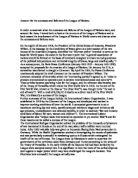
Account for the successes and failures of the League of Nations.
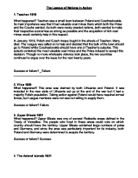
The League of Nations in Action - successes and failures.
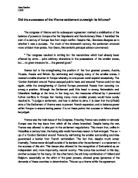
Did the successes of the Vienna settlement ou tweigh its failures?

The Treaty of Versailles - Questions and ansewers.

Wilson's Failure? The Treaty of Versailles
“The 11 th hour of the 11 th day of the 11 th month…” Is there a U.S. History teacher who hasn’t recited this phrase while discussing World War I and the Armistice that promised its end? There is, however, another date worthy of mention in this discussion. It is November 19, 1919 , on which date the United States Senate did something it had never done before; it rejected a peace treaty, specifically the Treaty of Versailles. Why? Certainly, every American wanted peace. WWI had been a horror show featuring terrible new weapons like the machine gun, the tank, and deadly gases that sent young Americans home horribly disfigured or in coffins. Why then would the Senate reject the treaty ending it all?
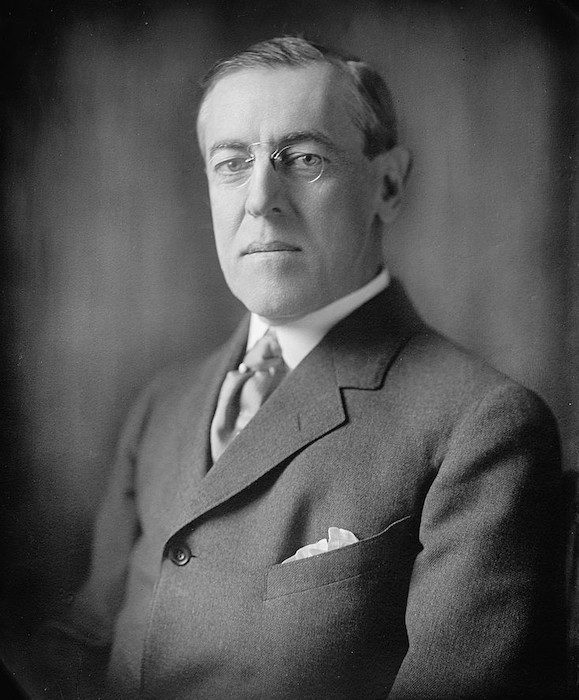
The answer comes in two major parts. One is a genuine reaction against Article 10 of the Treaty of Versailles (establishing a League of Nations) that conservative senators believed violated the sovereignty of the United States. At the same time, attention must be paid to the single-minded (bordering on hubristic) approach taken to the treaty by then- President Woodrow Wilson . It is hard to follow the chain of events leading to the vote without noting several serious missteps by Wilson that doomed his peace plans pretty much from the beginning.
Wilson’s “Fourteen Point” Plan
The United States formally entered WWI in April of 1917, and by January of the next year, President Wilson had codified his plans for “peace without victory” and presented his “ Fourteen Points ” to Congress and the world. The initial reaction was mixed. The Allied Powers approved of most of the plan, but raised serious questions about several issues, especially freedom of the seas and reparations. Wilson, however, was nothing if not persistent. Following the Armistice, he decided to go to Paris to present his case in person (the first time a sitting president would make such a trip), demonstrating how deeply Wilson felt that he alone could present America’s position in these negotiations.
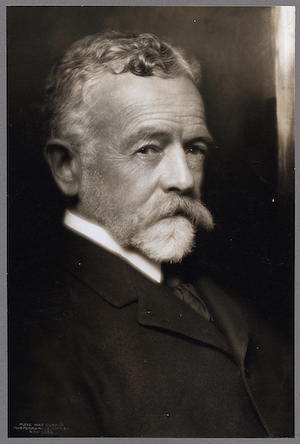
Wilson’s approach influenced the makeup of the U.S. delegation selected to participate in the Paris negotiations. (The Treaty was only signed at the Palace of Versailles; the negotiations took place in Paris.) In the mid-term elections of 1918, the Republican Party had taken control of both houses of Congress, with Henry Cabot Lodge , long Wilson’s adversary, taking the chair of the Foreign Relations Committee. Given that Article II, Section 2 of the U.S. Constitution requires treaties to be passed “with the advice and consent” of the Senate, including Lodge in the peace conference would have been a smart move by the President. It didn’t happen. In fact, no Republican was included in the negotiating team at all, nor had any been involved in crafting foreign policy in the Wilson administration.
Wilson at Versailles
Wilson’s sense of his personal value to the peace process only increased as he was received with great celebration and honors on his arrival in Europe. In Great Britain, he was feted at a royal dinner, the first held since the war had begun, and in Italy, American troops (and many Italian citizens) gave the President a hero’s welcome. His counterparts at the table at Versailles did not quite share such enthusiasm. For one, Wilson’s personal style grated on their nerves. French Prime Minister Georges Clemenceau was overheard to say , “Mr. Wilson bores me with his Fourteen Points; why, God Almighty has only 10!” It’s also worth remembering that after the Franco-Prussian War, France had been required to pay heavy indemnities to Prussia in both land and gold, so it was optimistic, to say the least, to expect them to abandon similar claims after this war. Finally, there was also the feeling that while the U.S. definitely made a difference in the war, it had not suffered the losses in soldiers and property borne by the other Allies and should therefore not lecture them on the propriety of their claims against Germany.
By June 28, 1919 (5 years to the day after Archduke Franz Ferdinand was assassinated) the treaty was signed. Like most international negotiations, there were compromises. Wilson gave his support to German reparations in exchange for the other major powers’ support for the League of Nations . Knowing the resistance the League would face back home, Wilson was certain he could sell the plan to the American public. Unfortunately, it didn’t work out that way. Wilson returned home to face a Republican-dominated Senate full of men he had snubbed, carelessly if not deliberately, and they did not receive the Treaty kindly.
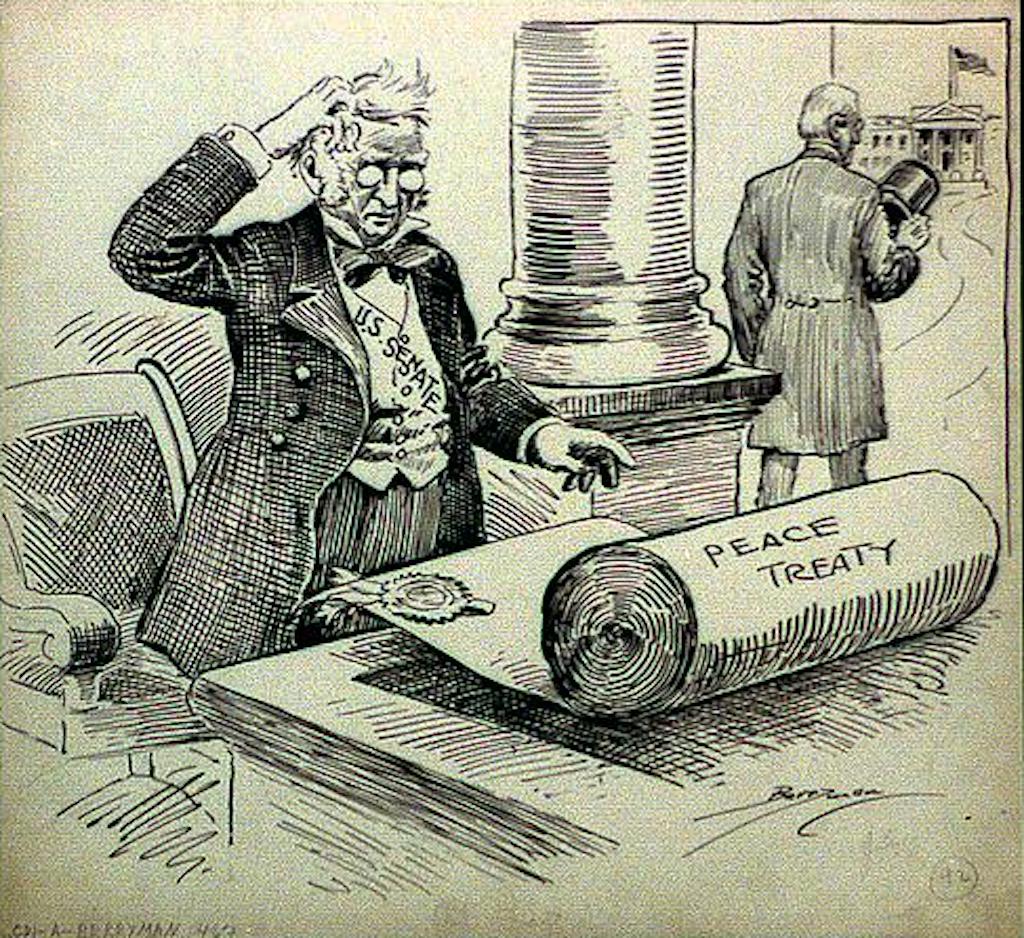
The Treaty of Versailles’ Reception in the Senate
Opposition came from two main groups, the Reservationists, and the Irreconcilables. Led by Senator Lodge, the Reservationists offered fourteen (coincidence?) modifications, or “Reservations” to the treaty. Their concerns focused on Article 10 and the possibility that membership in the League of Nations , as described in the Treaty, could force the United States into economic sanctions against other nations, or possibly even drag the United States back into a conflict as bad as, if not worse than, the “War to End All Wars.” These reservations by themselves would not have prevented ratification of the treaty, but Lodge knew full well that Wilson was unalterably opposed to them, so it seems fairly clear that Lodge had no intention of seeing the treaty approved.
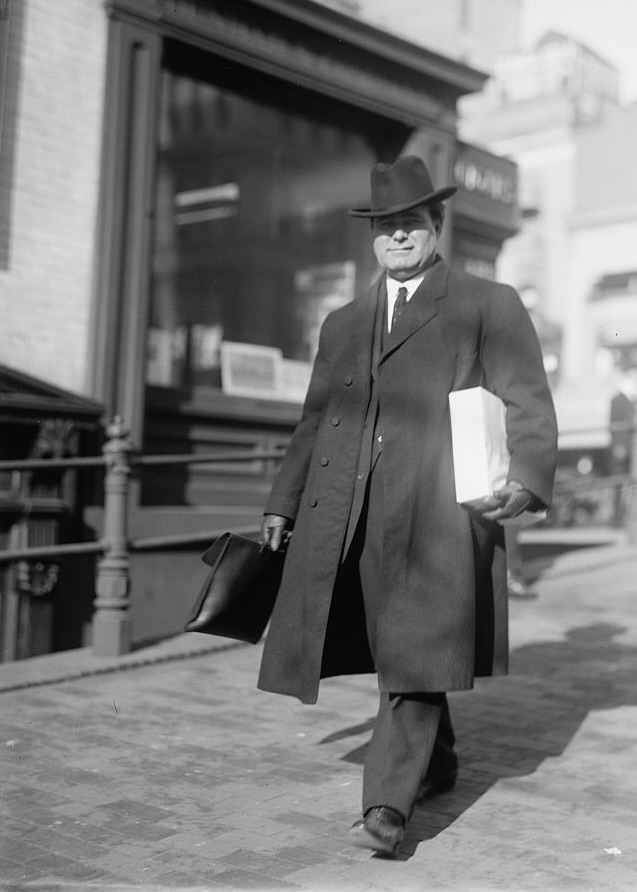
Led by Senator Borah of Idaho , a devout isolationist also known as “the Great Opposer” for his independent stands on many issues, the Irreconcilables were much blunter in their approach. They wanted nothing to do with the Treaty or the League , period. In a nearly two-hour speech, Borah expressed the group’s staunch support for the “the great policy of ‘no entangling alliances’ upon which the strength of this Republic has been founded for one hundred and fifty years…” In response to the Reservationists efforts to modify the treaty he asked, “where is the reservation which protects us against entangling alliances?”
Taking the Treaty of Versailles to the American Public
Recognizing the strength of his opposition, Wilson took his case to the people, touring the United States to gain support for the Treaty. Speaking in Pueblo, Colorado on September 25th, 1919, he argued that “We have heard that we might be at a disadvantage in the League of Nations. Well, whoever told you that either was deliberately falsifying or he had not read the Covenant of the League of Nations.” Time and again, he stressed that membership in the League would not bind the United States to the kinds of commitments feared by both Reservationists and Irreconcilables. Unfortunately for Wilson, a stroke he suffered shortly after the Pueblo speech left him so impaired he was unable to continue his tour.
So, on November 19 th , Senator Lodge brought his version of the Treaty, with reservations, to the Senate where it was soundly rejected, in no small part because President Wilson urged Democratic Senators to vote against any version of the Treaty that included amendments or reservations. It was his treaty or no treaty. No treaty resulted, when the Senate next voted on the original version, rejecting it as well.
Lessons of Versailles
The United States concluded a separate treaty with Germany on August 25 th , 1921, but never became a member of the League of Nations. It is hard to tell just who was most responsible for the failure to ratify the treaty, President Wilson or the Senate, but certainly the headstrong approach of a President who seemingly deliberately insulted the body responsible for approving the treaty, must weigh heavily in that evaluation.

Rusty Eder currently teaches History (Freshman Humanities History, Traditional United States History, Advanced History, and a semester-long Constitutional Seminar) at West Nottingham Academy, where he also serves as Dean of Faculty and Academy Historian. He earned his BA in History at UMBC and his Master of American History and Government at Ashland University. Additionally, he is a fellow of the James Madison Memorial Fellowship Foundation and has served as an Ashbrook Ambassador at several seminars in his area.
Veteran and Teacher Royce Aldridge
The first thanksgiving—truth or fiction, join your fellow teachers in exploring america’s history..

IMAGES
VIDEO
COMMENTS
The Treaty of Versailles was signed on June 28, 1919, and officially ended the war between Germany and the Allied Powers. The controversial War Guilt clause blamed Germany for World War I and imposed heavy debt payments on Germany. The Treaty of Versailles was a major contributing factor in the outbreak of the Second World War.
The Treaty of Versailles, signed in 1919 at the Palace of Versailles in Paris at the end of World War I, codified peace terms between Germany and the victorious Allies.The Treaty of Versailles ...
The Treaty of Versailles articulated the compromises reached the conference. It included the League of Nations' planned formation, which would serve both as an international forum and an international collective security arrangement. U.S. President Woodrow Wilson was a strong advocate of the League as he believed it would prevent future wars.
The Treaty of Versailles was the primary treaty produced by the Paris Peace Conference at the end of World War I.It was signed on June 28, 1919, by the Allied and associated powers and by Germany in the Hall of Mirrors in the Palace of Versailles and went into effect on January 10, 1920. The treaty gave some German territories to neighbouring countries and placed other German territories under ...
Henig, Ruth. Versailles and After: 1919 - 1933 (London: Routledge, 1995). Henig provides a very thorough account of the Treaty of Versailles and the development of the League of Nations. She argues here that the reluctance to enforce the treaty, rather than the treaty terms themselves, was the main cause of the treaty's failure. Hobsbawm, Eric.
Explore how the Treaty of Versailles divided the Allies at the end of World War One. ... It was the total failure of the victorious powers to work closely together after 1919 to contain German ...
May 31, 2019. • 4 min read. On June 28, 1919, on the outskirts of Paris, European dignitaries crowded into the Palace of Versailles to sign one of history's most hated treaties. Known as the ...
The Treaty of Versailles was a peace treaty signed on 28 June 1919. As the most important treaty of World War I, it ended the state of war between Germany and most of the Allied Powers.It was signed in the Palace of Versailles, exactly five years after the assassination of Archduke Franz Ferdinand, which led to the war.The other Central Powers on the German side signed separate treaties.
The treaty's failure to address issues such as colonialism and self-determination also had far-reaching consequences, leading to ongoing conflicts in regions such as Africa and the Middle East. In conclusion, the Treaty of Versailles had a significant and lasting impact on international relations and conflicts.
The treaty was lengthy and ultimately did not satisfy any nation. The Versailles Treaty forced Germany to give up territory to Belgium, Czechoslovakia and Poland, return Alsace and Lorraine to ...
Weimar Republic - Treaty, Versailles, 1919: The government's instructions to the German peace delegation that went to Versailles, France, at the end of April 1919 show how wide was the gap between German and Allied opinion. In German eyes, the break with the past was complete, and the Wilsonian program of self-determination and equality of rights as set out in the Fourteen Points was binding ...
The Treaty of Versailles. The post-war peace settlement signed at Versailles, France in June 1919 imposed very harsh terms on the new German republic. The severity of these terms generated intense debate and political division within Germany. While Germans overwhelmingly opposed the treaty, they were sharply divided about how to respond to it.
In the decades since, generations of historians have written countless books and other works creating what "everyone knows " about the 1919 Treaty of Versailles: The overly punitive treaty, imposed as "victors' justice" on helpless Germany by the triumphant Allies, was chiefly responsible for making World War II inevitable.
Treaty of Versailles - Reparations, Military, Limitations: The war guilt clause of the treaty deemed Germany the aggressor in the war and consequently made Germany responsible for making reparations to the Allied nations in payment for the losses and damage they had sustained in the war. It was impossible to compute the exact sum to be paid as reparations for the damage caused by the Germans ...
However, to make a long story short, The terms of the Treaty of Versailles were so harsh on Germany because the French and Prussian/German governments had been one-upping each other in war reparation demands since 1807, through 1815, 1871, and finally 1919. Share. Improve this answer. edited Dec 18, 2017 at 0:26.
The Treaty of Versailles is one of the most controversial armistice treaties in history. The treaty 's so-called "war guilt" clause forced Germany and other Central Powers to take all the blame for World War I. This meant a loss of territories, reduction in military forces, and reparation payments to Allied powers.
Many people over the years have argued the Treaty of Versailles was a fair peace settlement for the following reasons: They believed Germany only said that it was unable to meet the terms because it wanted to escape punishment. They thought it punished the defeated countries but gave them the opportunity to recover. Some people believed it wasn ...
One of the primary reasons for the failure of the Treaty of Versailles was its punitive nature. The treaty imposed harsh reparations on Germany, demanding massive financial compensation for war damages. These reparations placed an enormous burden on the German economy, leading to hyperinflation, economic collapse, and widespread poverty.
This souvenir copy of the Paris Peace Conference program is signed by President Woodrow Wilson and other world leaders. The treaty would largely come to be seen as a failure for Wilson, however. Congress, concerned about conceding individual power in order to become a member of the League of Nations, refused to ratify it.
How the Treaty of Versailles Contributed to Hitler's Rise. Its provisions left Germany in ruins, fertile ground for the Nazis. In 1919, a defeated Germany was presented with peace terms by the victorious powers of World War I. Germany wasn't invited to negotiate and was given a stark choice: sign or be invaded.
The Treaty Of Versailles History Essay. November 11th. 1918, an extremely important day in history; this was the day that the Germans signed a cease fire, 'the Armistice'. And that was the first step of a domino effect that led to the eventual end of World War I. On January 18th, 1919 the delegates from Thirty-two countries arrived in Paris ...
The League of Nations, which was written into the Treaty of Versailles, had an aim of addressing the causes of conflict and restoring and maintaining peace and normality by an unprecedented level of international co-operation although had some initial success, was ultimately a failure.
The answer comes in two major parts. One is a genuine reaction against Article 10 of the Treaty of Versailles (establishing a League of Nations) that conservative senators believed violated the sovereignty of the United States. At the same time, attention must be paid to the single-minded (bordering on hubristic) approach taken to the treaty by then-President Woodrow Wilson.
The "Treaty of Versailles" is a very controversial and possible reason for "World War 2". It created what most believe to be a very unfair set of laws against Germany that made them extremely mad and made them want to fight back. This essay will have 5 paragraphs following this one. 1 will be discussing details such as facts leading up ...